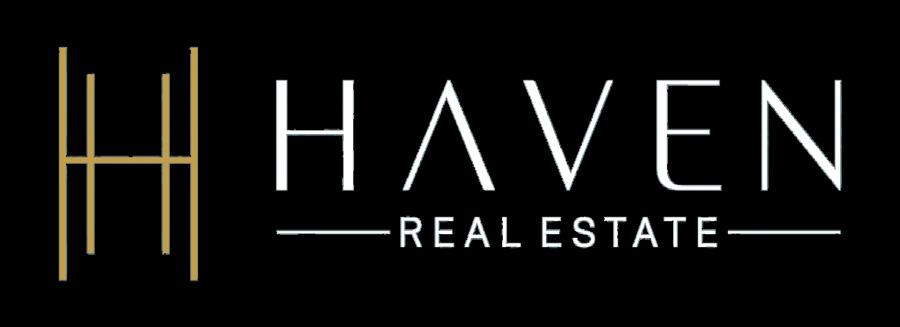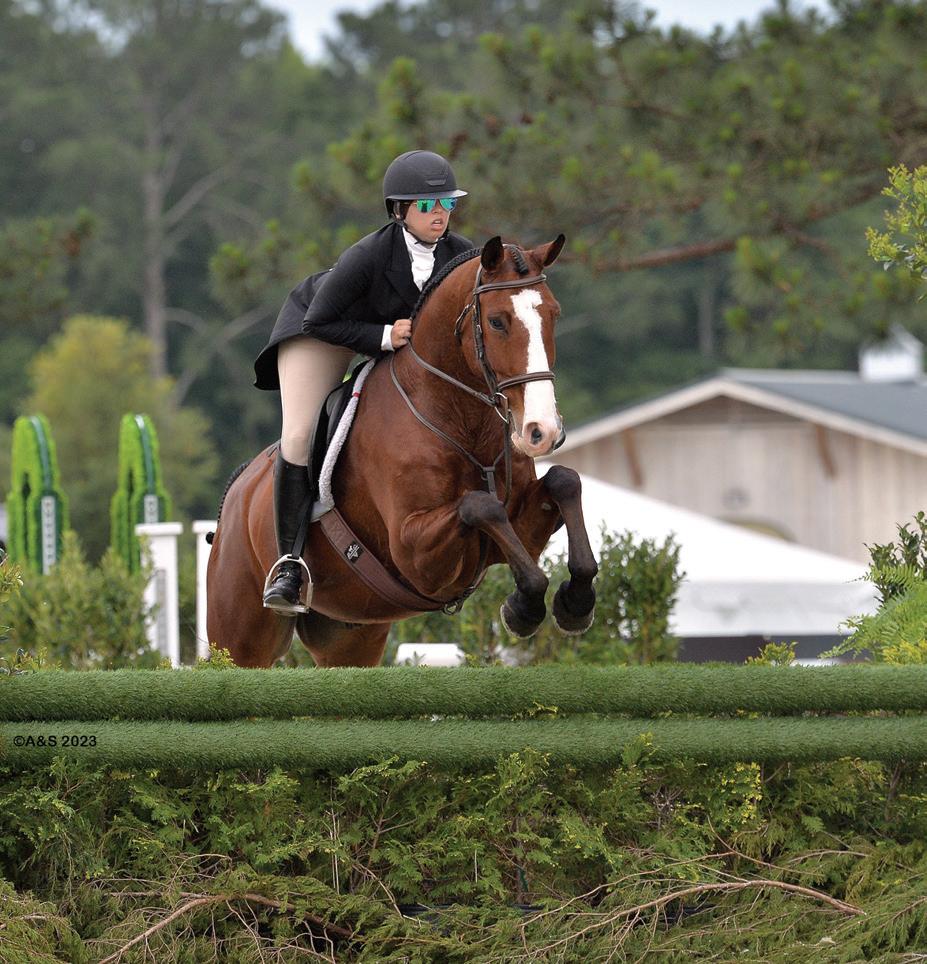
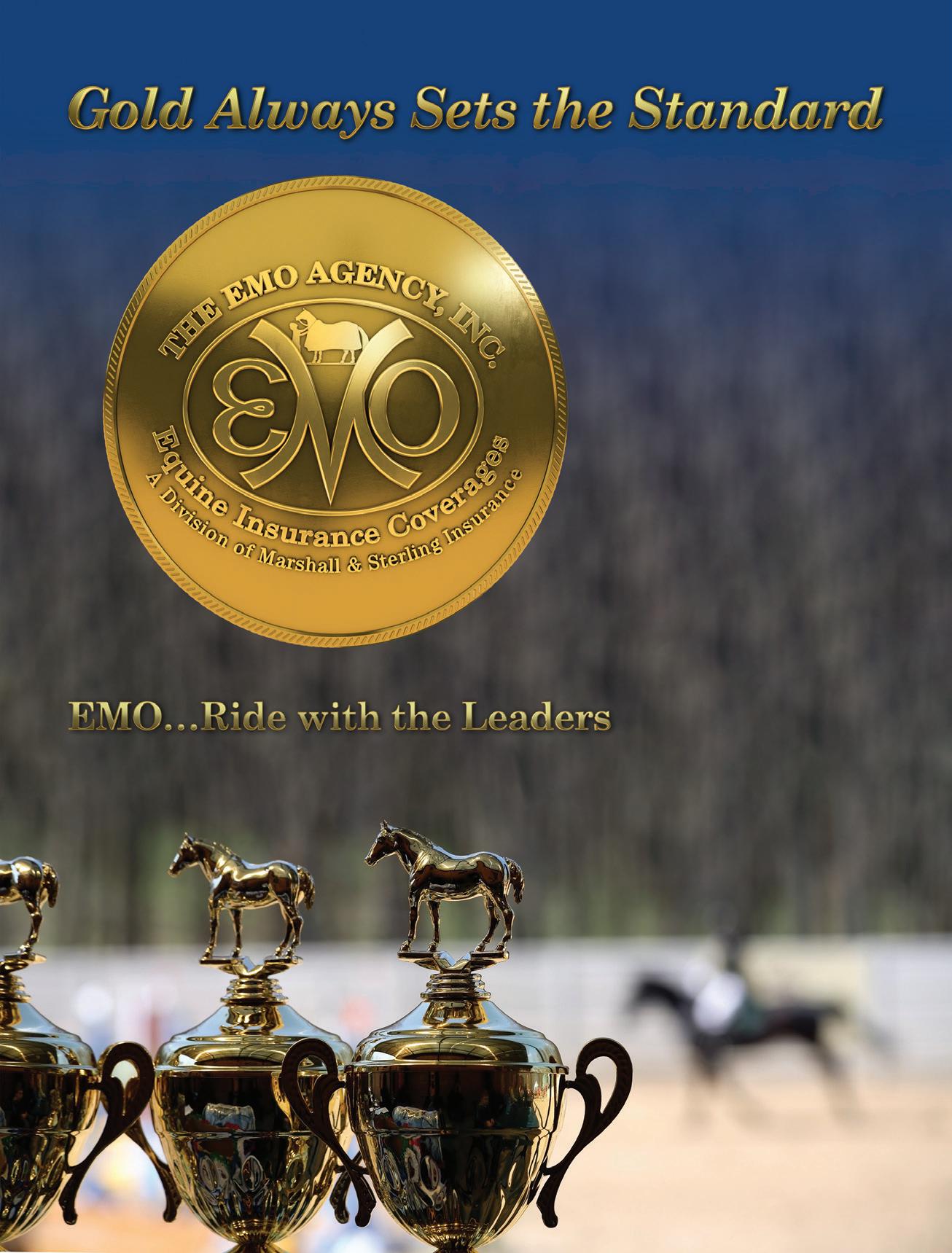







Congratulations to SCAD Equestrian on an unprecedented championship year!

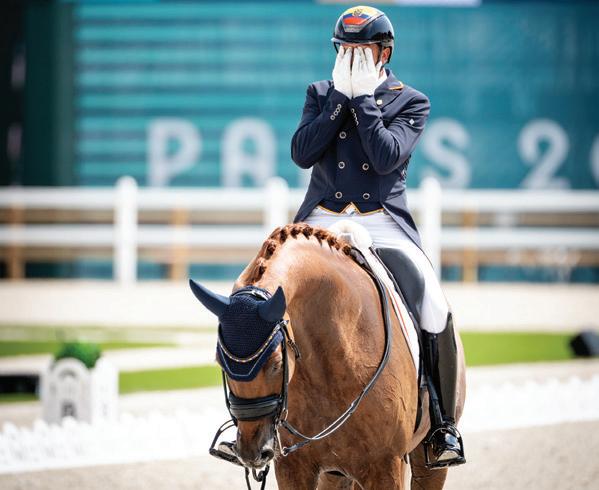

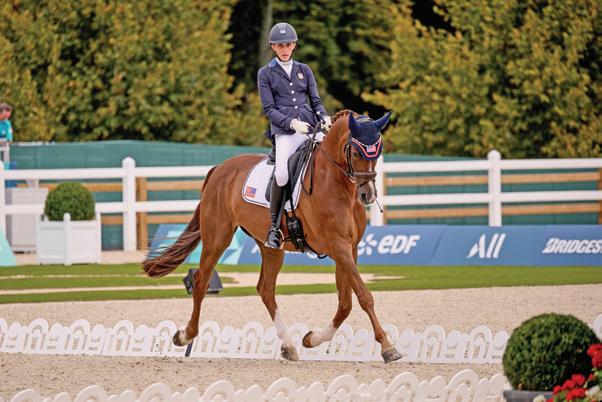
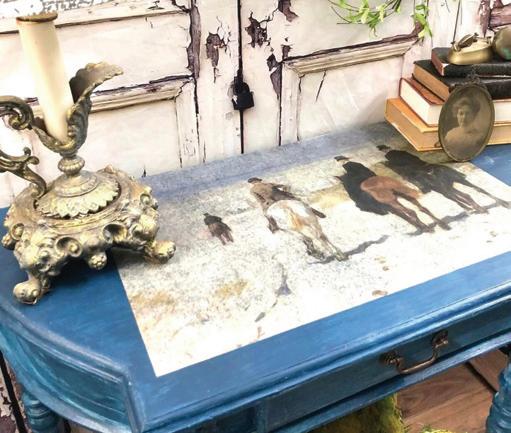

Fall 2024; Volume 10, Issue 4
Editor Lauren Allen
Publisher Pam Gleason
Layout & Design
Larchwood Productions
Contributors
Lauren Allen
Shannon Brinkman
Liz Crawley
Pam Gleason
Liz Gregg
Gary Knoll
Suzanne Konefal
Lily Forado
Sharon Packer
Meghann Padgette
Sally Spickard
Advertising
Lauren Allen
803-240-1275
Pam Gleason
803-643-9960
General Inquiries
Lauren Allen
803-240-1275
thecarolinasequestrian@gmail.com
Cover
Julio Mendoza Loor and Jewel’s Goldstrike compete in dressage at the 2024 Paris Olympics, Palace of Versailles.
Photography by Shannon Brinkman
Like us on Facebook:
The Carolinas Equestrian Magazine
Intragram: CarolinasEquestrianMag Web: TheCarolinasEquestrian.com
The Carolinas Equestrian (TCE) 1176 Old English Road Lugoff, SC 29078
I love fall! The summer doldrums are finally whisked away and the cooler air seems to revitalize my horses and renew my riding goals.
It’s a good time to read up on some unbelievably inspiring riders with Carolina connections.
North Carolinabased dressage rider
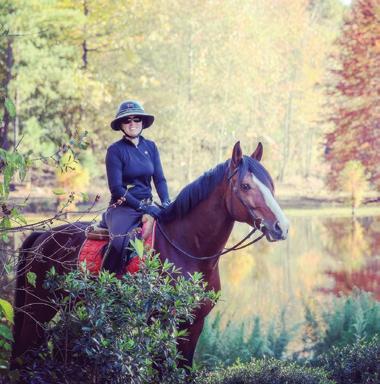
Julio Mendoza Loor has been quietly gaining a reputation for both excellence and the kind of horsemanship that stands out in the intense world of high level equestrian sport. Read more about his meteoric rise from very humble beginnings in our cover story.
Equestrian real estate is hot property: from subdivisions featuring communal riding spaces, to small family farms, to million dollar facilities—read about trends and developments across the Carolinas. In some places with longtime equestrian affiliations, horses have become integral to the area’s identity. However, the insatiable hunger for housing sometimes puts historic equestrian properties under threat. How do we preserve the past and still welcome progress?
Fiona Howard brought home three gold medals for the United States from her first Paralympic Games in Paris, France. She was born in England to an American mother and British father. Although she is based in Florida, her love of horses has roots in the Carolinas.
Designer Paula Metcalfe has used her gift for decorating to develop a unique equestrian-themed business. Charleston Chalks offers horse lovers truly one-of-a-kind items of furniture. Clients choose from either new or newly refurbished pieces, with a choice of chalk paint finish and a custom image—and unlike most things equestrian, these pieces won’t break the bank!
We hope you love these stories and pictures—please reach out to us through our website at TheCarolinasEquestrian.com or on Facebook or Instagram and tell us about people we need to talk to, events we need to cover, or places we need to go see.

Lauren Allen, Editor
This summer, Julio Mendoza Loor, who is a dual American/Ecuadoran citizen, became the first Ecuadoran dressage rider ever to compete in the Olympics. He and his 2011 Dutch Warmblood gelding Jewel’s Goldstrike won the individual gold medal at the 2023 Pan American Games in Santiago, Chile, and they have been making history ever since. It has been a remarkable journey for a dedicated North Carolina horseman, born in a bamboo hut, and now at the pinnacle of the sport.
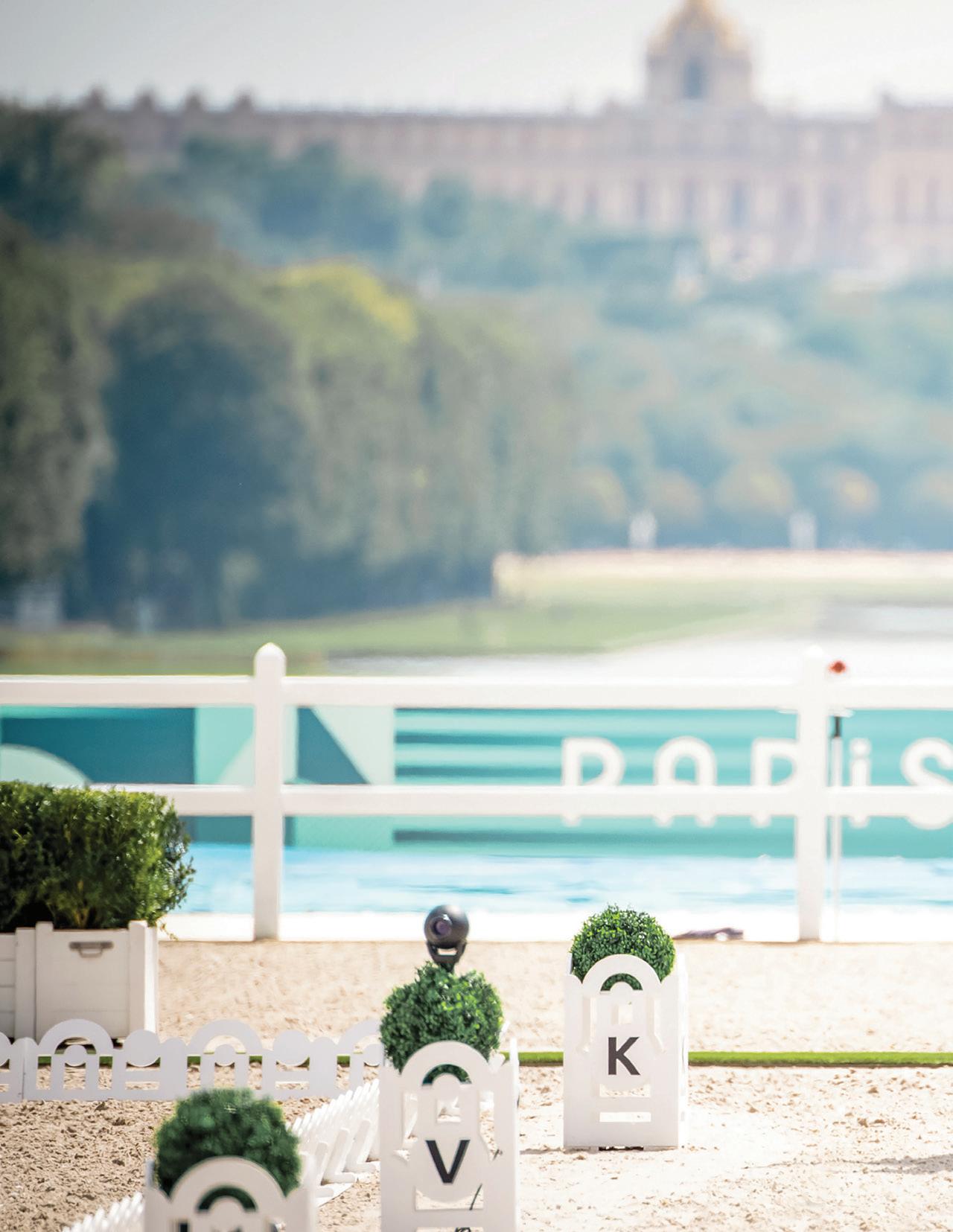
By Lauren Allen
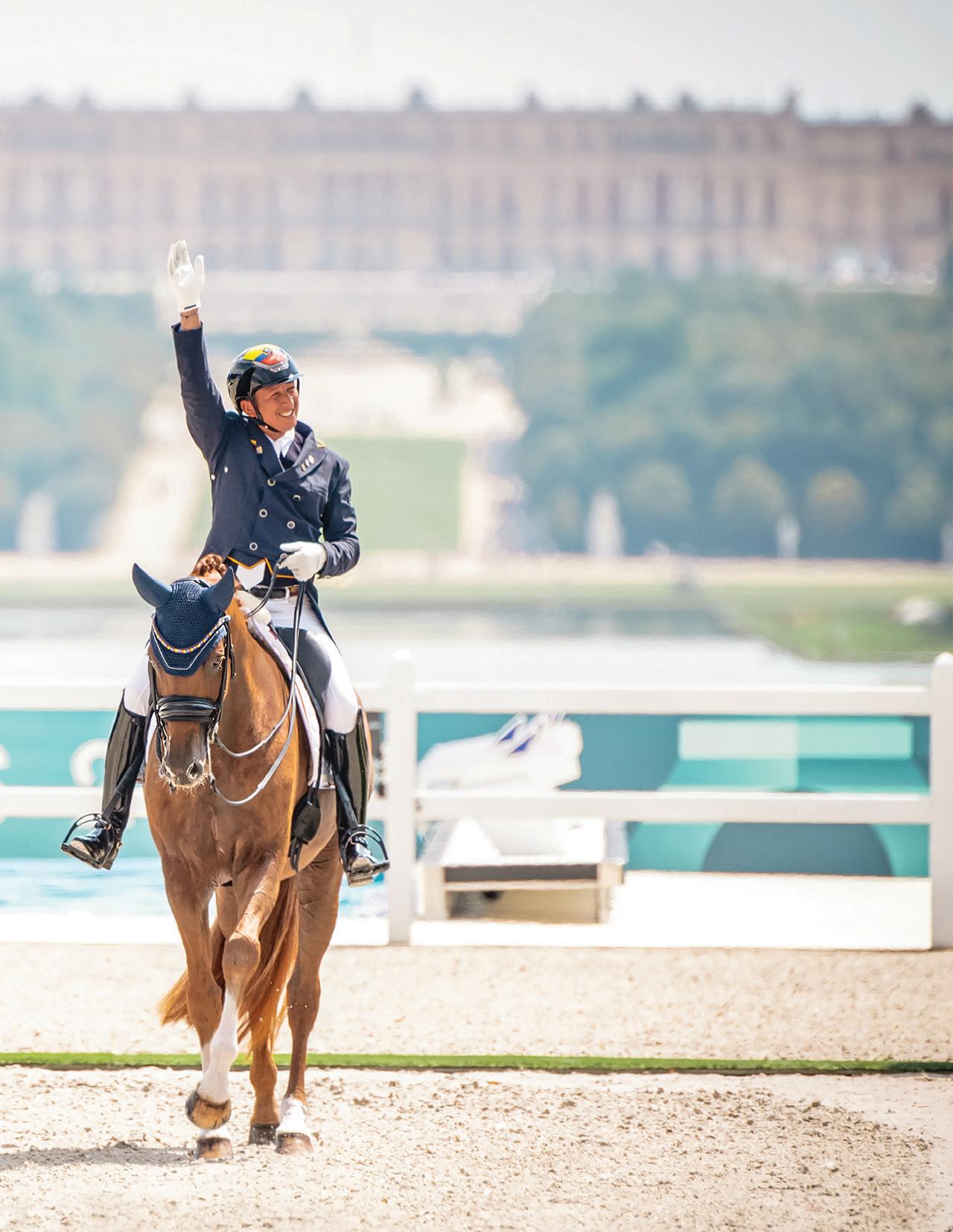
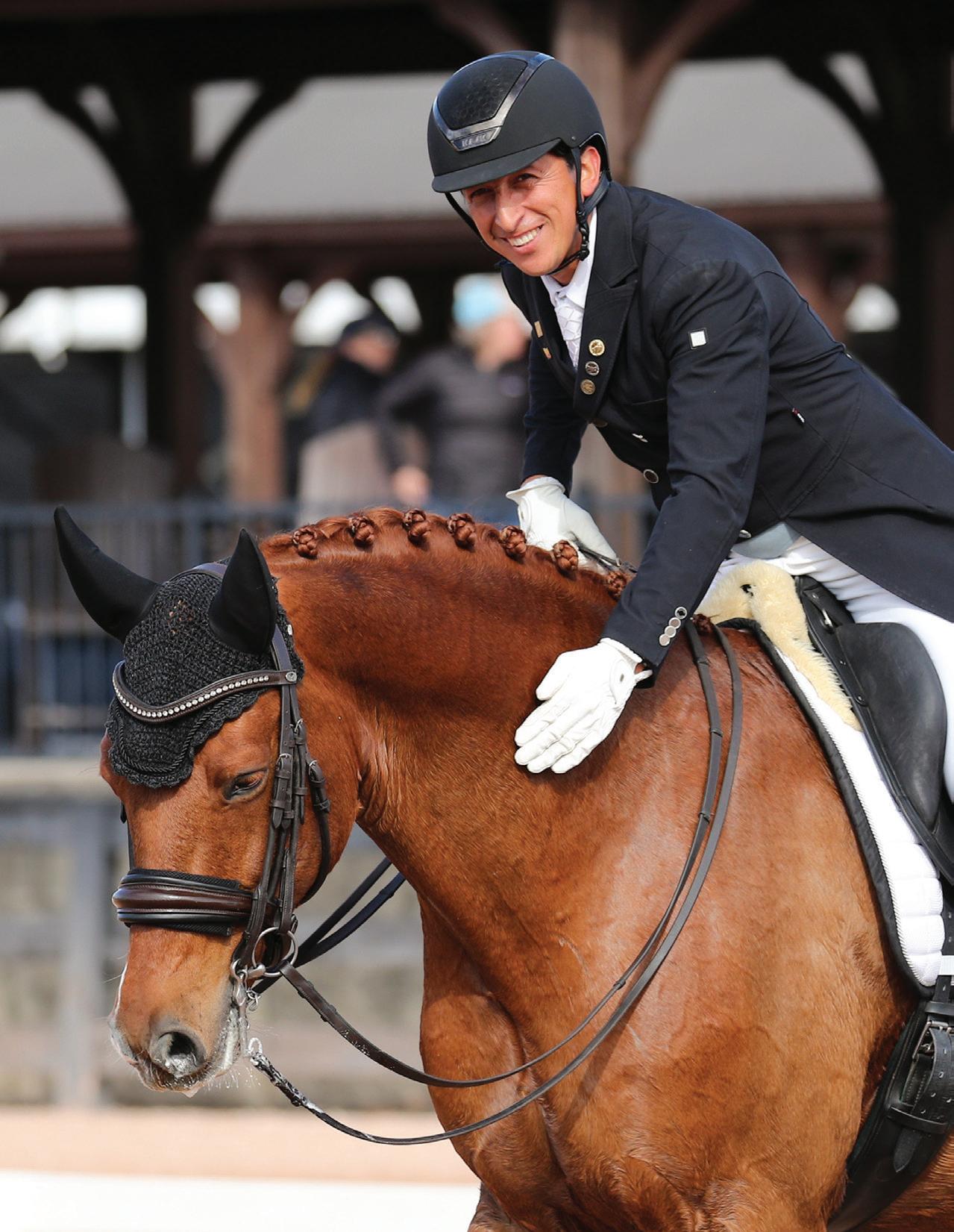
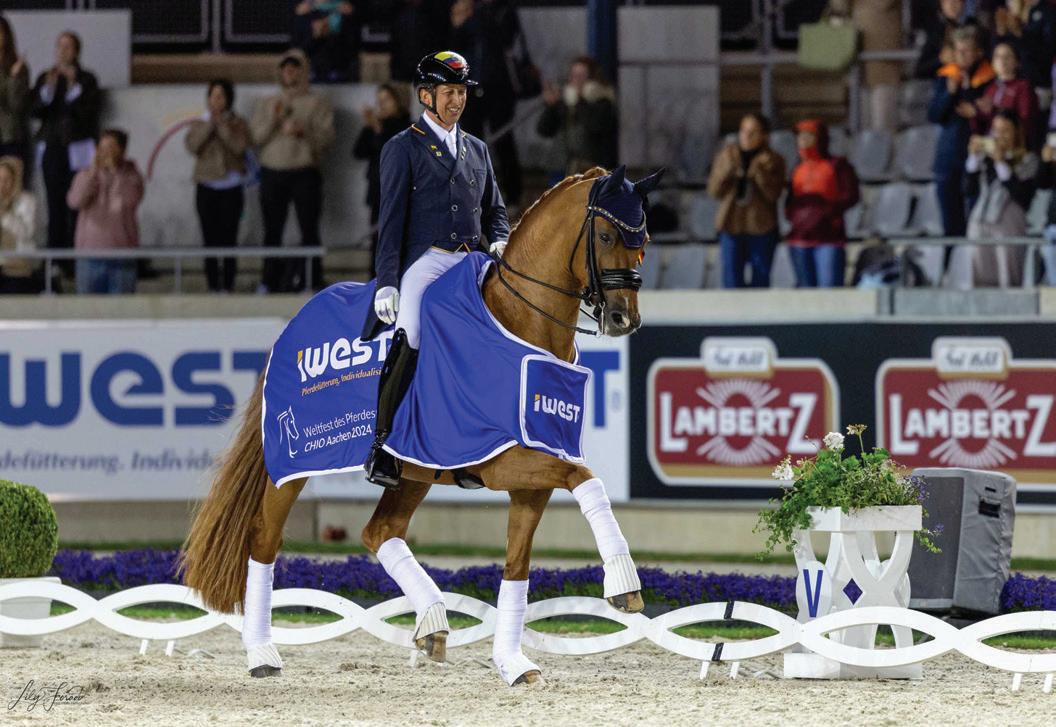
Dressage rider Julio Mendoza Loor is riding high after he and his horse, Jewel’s Goldstrike (“Goldie”) returned home as heroes from an epic journey. The pair completed their first trip to Europe, their first Olympic Games, and earned their first historic win at Aachen, Germany. There, Mendoza stood atop the podium after winning the 4* musical freestyle, with a test set to the rhythms of Mendoza’s native country, Ecuador.
“Never before has a person from South America been able to achieve that in Aachen, and also representing America, because I am an American citizen and a North Carolina hometown boy,” says Mendoza. He enthusiastically conveys his pride at his recent success and his gratitude to his wife Jessica, his family, his coach, and especially to his horse. He also speaks with candor about feeling anxious and starstruck.
“Before we left, I was very nervous. I don’t know the country, I don’t know the culture, but when I got there, I was able to see all my friends and it was so much fun” says Mendoza. “I was very nervous in the beginning, thinking ‘Oh my gosh, this is real.’ Seeing all the mega riders warming up in the same arena – it was very special.”
Julio and Jessica Mendoza own and operate Mendoza Dressage, a training facility in Columbus, North Carolina, near Tryon, and they believe in doing whatever it takes to keep the horses happy and healthy.
At home, Goldie lives outside in the field, because as Mendoza says, that is what he likes. In Europe, Mendoza walked him in hand for 45 minutes every two hours.
“It is a commitment I have with my horse because he has already given me so much. He helped me win the gold medal in the Pan
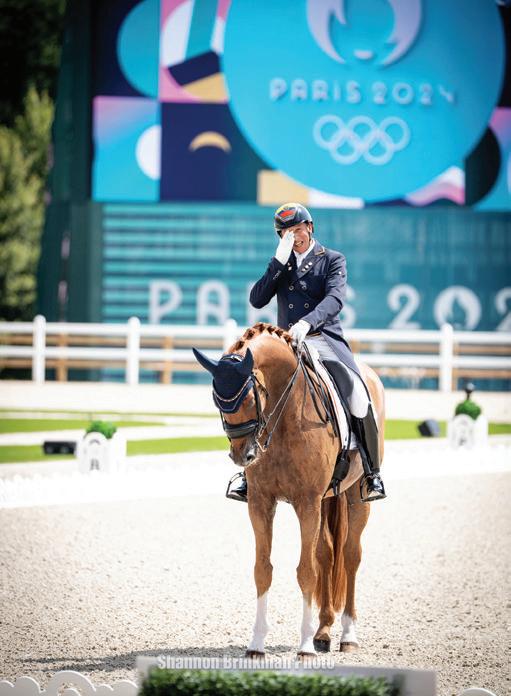
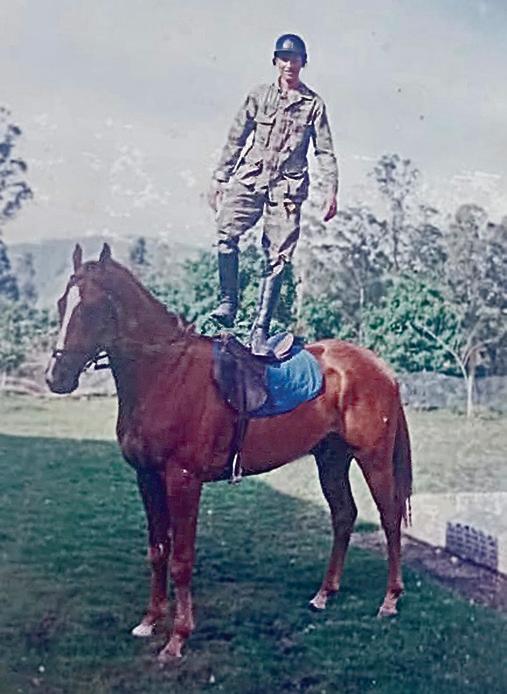
American Games, Nations Cups, CDIs in Ocala and Wellington.”
He says that he told his horse “I know you aren’t going to have your turnout but my promise to you is walking you every opportunity I have.” He believes that the extra time spent together brought them even closer - he told Goldie stories about his childhood. But when asked about the specifics of those stories, Mendoza laughs. “My horse cannot tell my secrets to nobody!
“I came from a very, very poor family. I was born in a bamboo hut. There were only two rooms– the bathroom was outside; we had to take a shower in the river.” Mendoza started riding at the age of 3 and doesn’t remember his first experiences with horses, but he does remember riding his horse to school because his family did not have a car. His school was an hour away and at recess when the other kids played soccer, he took hay and water to his horse.
He also recalls a time when he got in trouble
for an unorthodox mount. “I remember all my cousins, we go to my grandpa’s house and everybody has a horse to go for a trail ride but there wasn’t a horse for me and they left me behind and I was very upset about that. And my grandfather had a big pig, almost 400-pound pig, and I brought the pig to the stable and put a saddle on it and when my grandfather found out I rode the pig that was not good,” he laughs.
Mendoza elaborates that he never forgets where he has come from. “Nothing is set in stone, that you have to have money to achieve your dream. If you work hard, if you have self-discipline, work ethic, you can achieve so much. Money can come today and go tomorrow, but your hard work and your dedication and your training to be better, no money can buy that. That is what I tell Goldie all the time, and my children too.”
Julio Mendoza says he moved to America in 2007, with nothing but a dream. “I married my princess in 2005, and it’s been almost a fairy tale.
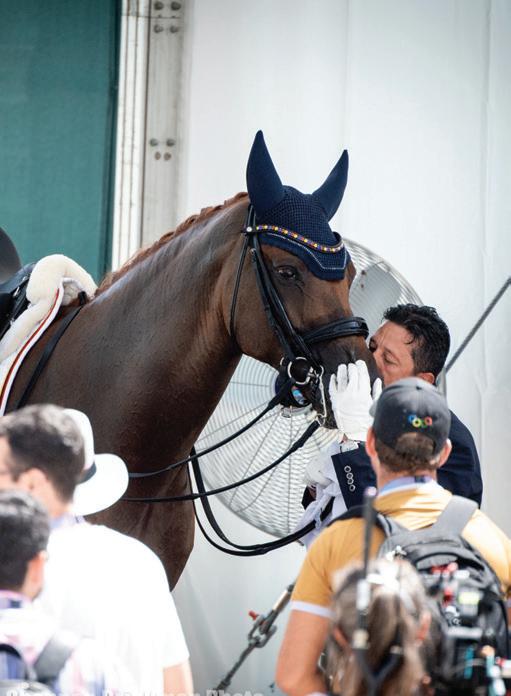
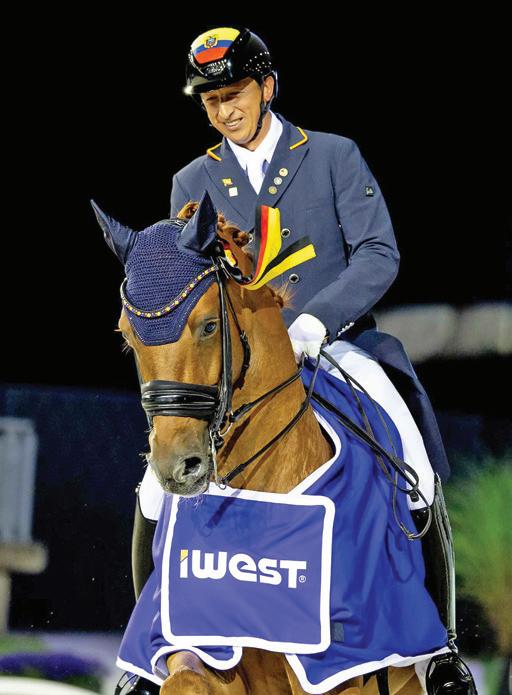
We got here to the United States with $20 – I had to learn to speak English.” Jessica, who met Julio in Ecuador, is an American citizen from Ohio and she found a position for them at a Friesian farm in Maryland. The family relocated there from Ecuador in 2007. In 2016, they bought their own farm in North Carolina. They have three children.
Mendoza rattles off reasons he loves their home in the Carolinas: “There is no traffic; the people are so nice; the air is pure. I love the mountains; 45 minutes to the lake; three hours to the ocean; hiking, trail rides, biking, four seasons, which I love! Winter is not that cold, but it is cold enough. The summer in Florida is too hot for me and the winter in the north is too cold for me. A middle ground to keep the horses happy. And a farm where the horses are able to live outside most of the time. I have multiple grand prix horses and they live outside – they are galloping, bucking. I love to see my horses bucking. If I want to give a cookie to my horse I have to find him in the field.
I live five minutes from the Tryon International showgrounds. What a blessing!
“When I was younger, I saw my grandpa working with the ranch horses or with horses with problems,” he continues. “Always at the end of the day it was about the partnership, the horsemanship. To figure out a way to communicate with the horse, not to abuse the horse, to have a discussion, respect…”
As a teenager, Mendoza says that friends tried to get him to become a bull rider or a jumper, “Why you do dressage, that’s for ladies! they said. No you don’t understand – that is the mentality for people who don’t want to understand the horse. If you understand the horse’s heart and the horse’s brain, then you become one; you and the horse’s soul become one.”
Mendoza, Goldie, Jessica and the family are taking a few months off from showing since returning from Europe, enjoying some muchdeserved time to rest and recuperate.
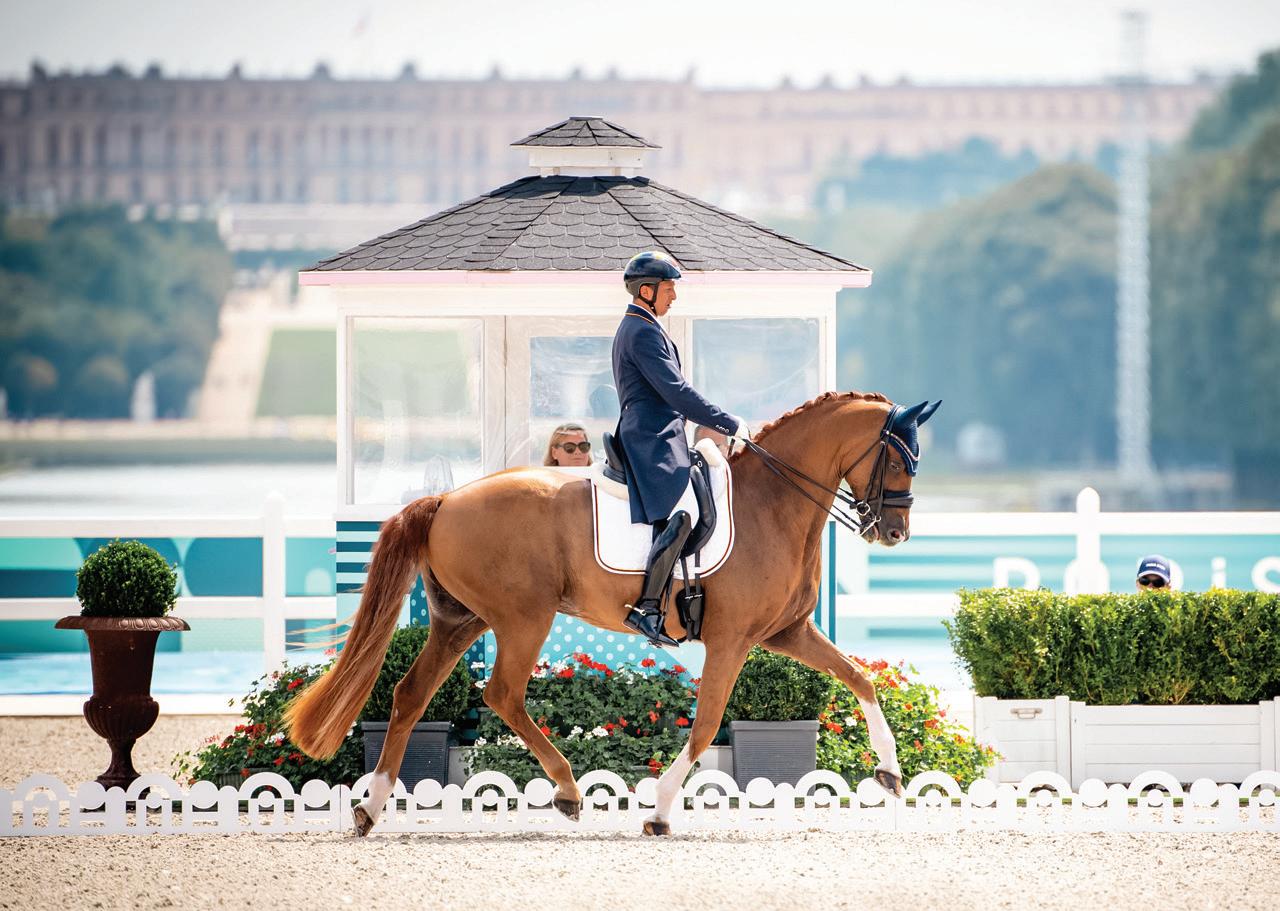
“In the Olympics, [Goldie] got very hot. The weather was almost 100 degrees, so it was hot in temperature, and the atmosphere and the people clapping and talking, the cameras, video cameras, grooms, horses coming and going – he got very nervous and a little bit distracted. What do you do, it is horses, not tractors, not computers. Horses have minds of their own. They have feelings, and they can feel how you feel, and I was also nervous, my first time in the Olympics. And it’s okay to be nervous because if you are nervous that means that you care! I got nervous and he got a little nervous and I am proud of him and what we have done and this is not the last one. We will see what happens in the future.
“If he is happy, because for me his happiness is much more important than my ego; if he is happy and he keeps going for four years then I will see if I get to take him to the next Olympics in the United States.”
Meanwhile, Mendoza plans to continue to raise and develop young horses. He says that he has a 10-year-old, a 7-year-old, a 6-year-old, a 5-yearold and two 2-year olds. He also has no plans to stop teaching. “I love to teach. I love it. If I have to pick between riding and teaching I would choose teaching … It makes me happy and I feel that I have a gift – you can be a good rider but you have to be able to transmit what you see and explain it to people so they can achieve what is in your mind.” He hopes to help his son learn to train and compete, and maybe one day coach him in the Olympics.
Every experience has been a blessing, says Mendoza. “All my life I am learning a little bit from everybody… what can I do to be better for my horse and for the rest of the horses, a better husband, a better father, friend, a better coach. That is what I talk to Goldie about all the time. And I tell him thank you for the opportunity to be his rider.”


Welcome 1 - National / Level 3
March 20-23
Welcome 2 - National / Level 3
March 27-30
Welcome 3 - National / Level 3
April 3-6
Welcome 4 - National / Level 3
April 10-13
Spring 1 - Premier / Level 6
April 30-May 4
Spring 2 - National / Level 4
May
May 14-18
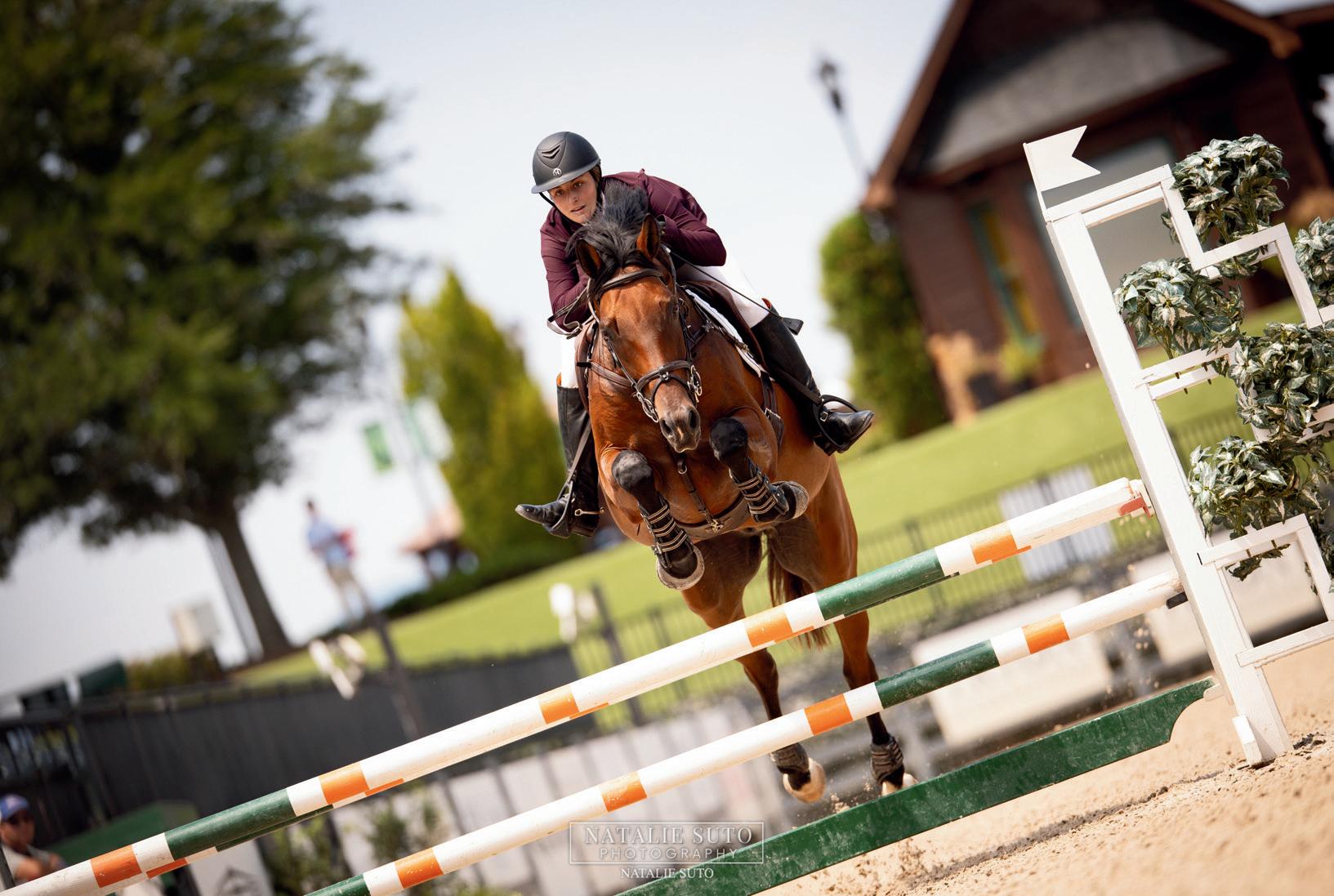



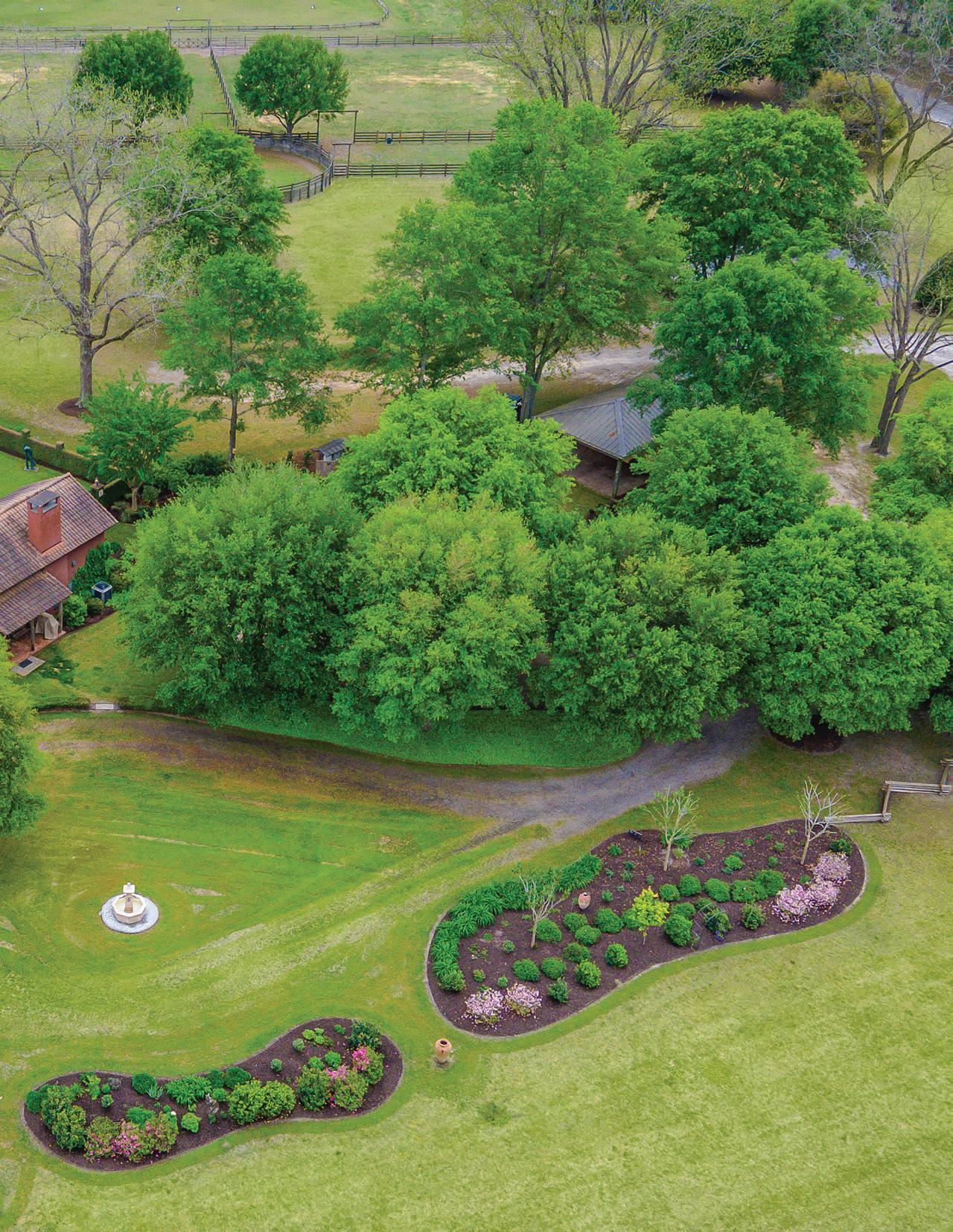
The Carolinas have been an equestrian destination for almost 150 years. Ever since the 1880s, people who love horses have come to North and South Carolina to ride, train, foxhunt, play polo and participate in equestrian competitions. Over the decades, some Carolina cities and towns developed reputations as places where horses would thrive and the people who loved them could find a community of like-minded individuals. In South Carolina, Aiken and Camden have had a long equestrian relationship. In North Carolina, Tryon and Southern Pines emerged as havens for horse people. Today equestrian real estate in the Carolinas is hot property, attracting buyers from across the country and around the world. What is the market like? We asked some real estate professionals for their perspective and advice on finding your own equestrian paradise.
By Pam Gleason, Lauren Allen & Suzanne Konefal
Historically, Aiken was known for its “Winter Colony” of northeastern sportsmen who descended on the city every winter. The preeminent names in Aiken history are Thomas and Louise Hitchcock, New Yorkers who spent their winters in Aiken from the 1890s until World War II. They and their friends played polo, foxhunted, trained steeplechase horses and purchased vast tracts of land, some of which was put into trust for future generations to enjoy. This includes the 2,100-acre Hitchcock Woods, which today has trails available to riders 365 days a year and is among Aiken’s most beloved attractions.
In the 21st century, Aiken has a remarkable variety of equestrian activities. World class competition venues abound: the Aiken Horse Park holds horse shows and the annual Grand Prix Eventing Showcase; Stable View regularly attracts Olympic event riders. There is a horse show almost every weekend at Highfields, home of Progressive Show Jumping, as well as many additional facilities for combined training, combined driving, polo, dressage and more. Aiken has a new steeplechase track and twice yearly race meets, and the historic Aiken Training Track offers learning opportunities for young Thoroughbreds destined for America’s most prestigious races.
When it comes to equestrian real estate, prospective buyers can choose a stand-alone property, or they can seek out a home in an equestrian development. Some of this decision depends on a person’s favorite horse sport. Carriage drivers gravitate to Windsor, east of
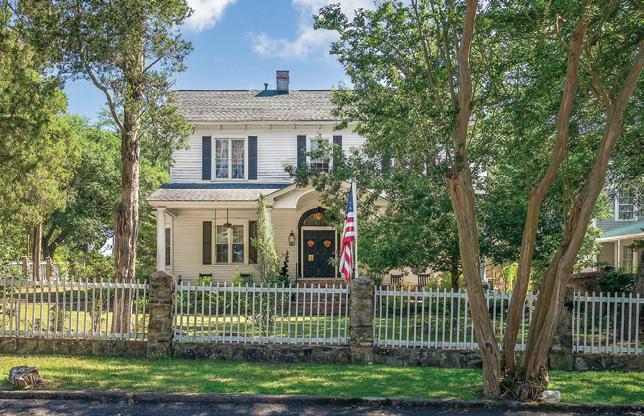
Aiken, where there is a driving community. Polo players shop for homes in New Bridge Polo Club, or buy land in the “polo corridor” off Route 302 east of town. Dressage and hunter/jumper riders might be drawn to farms closer to town, or to developments such as Three Runs or Tod’s Hill. The Bridle Creek community has always been big for eventing riders.
Realtors say the market for horse property is tight,so you might not find exactly what you are looking for right away.
“I just did a quick search in the Aiken MLS [Multiple Listing Service] said Tracey Turner, a realtor with the Sullivan Turner Team at Meybohm Aiken. “As of September 25, there are 25 active equestrian properties in Aiken County that have an existing barn or stable priced from $430,000 to $12,500,000. Only three of them are under $600,000.”
Tracey and her business partner Cissie Sullivan say that trail access is important to many of their clients. This means that if buyers can’t be downtown within hacking distance of the Hitchcock Woods, the equestrian developments become very attractive and command higher prices.
“The equestrian communities have amenities and trail systems,” said Sullivan. “It’s interesting, though, because some buyers are quite firm in their priorities. Some very much want to be in a community with amenities, while others feel strongly about finding a property outside an HOA.”
Turner’s advice for shoppers is to work with a realtor who knows the market in Aiken, and not to hold out for the perfect property.
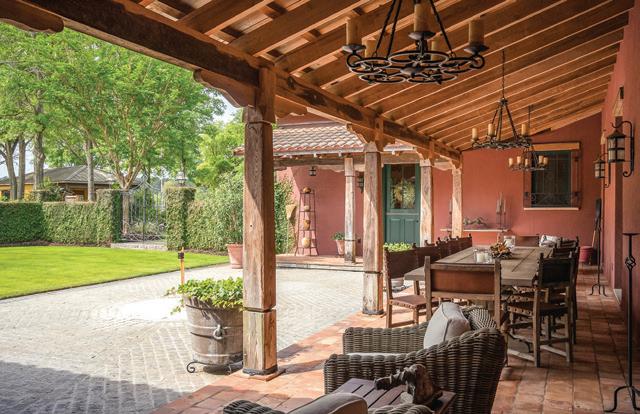
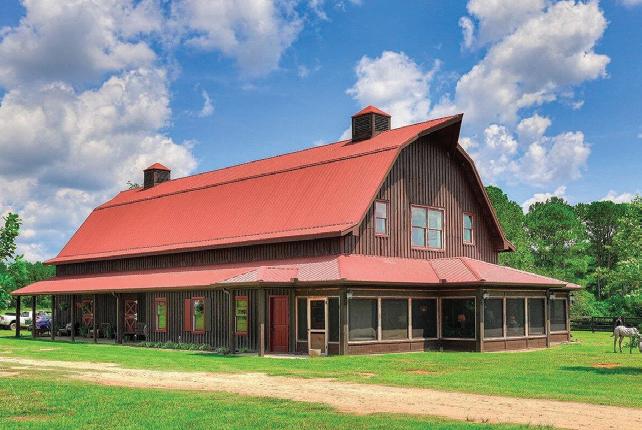
“If you need it horse-ready today and you find a property that can work for you, I would recommend that you step up and buy it. You have to know what your priorities are and have that drive your search. Most buyers would be better served to get into the market now and work with a property that ticks a number of their boxes. If the perfect farm comes along, you can always sell. I don’t think that the prices are going to come down.”
Deirdre Stoker Vaillancourt, a vice president at Meybohm, specializes in high end horse properties. She sees a robust market, partly driven by people coming from places like California, Colorado and Oregon.
“We continue to see a significant interest in our real estate market at all price points,” she said. “And we continue to get potential buyers from all over the United States.” Vaillancourt stresses that people from different parts of the country need to work with a realtor who is familiar with local values so that they don’t end up paying too much, even if it feels like a bargain compared to where they come from. However, in the case of luxury properties, the price is not an issue.
“The unique properties always have a buyer,” she said. “And that buyer will have unique requirements.” As an example, she cites a historic Winter Colony home that took over a decade to sell, but eventually a person came along with a passion for history, bought it, and restored it to its original glory. A current example is Estancia Wiggins, a custom estate between Charleston and Aiken with every equestrian amenity. It is the ideal home for someone, but it would not be affordable or workable for everyone.
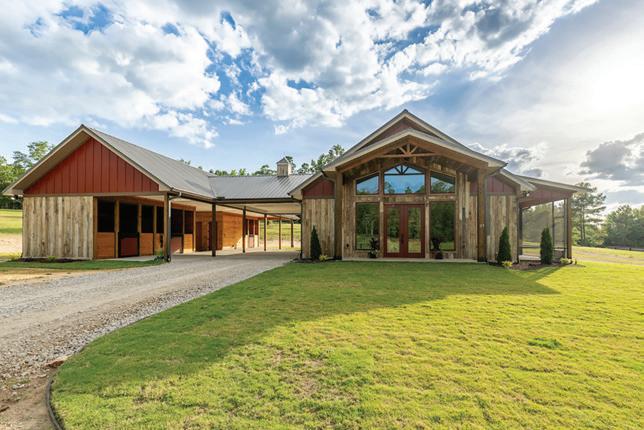
“At the high end of the luxury market, buyers buy on passion and a desire for a lifestyle,” she said. “They aren’t worried about the price.”
More typical buyers are often looking for a smaller farm, such as a home with a stable on five to 10 acres. These properties are not easy to find.
“The demand for equestrian properties is similar to beachfront properties. It continues to rise, and scarcity is as important as location,” said Vaillancourt. During the pandemic, the popularity of equestrian properties in Aiken surged, and the available inventory shrank. But now the market is beginning to settle down.
“There is a normal calendar of buying and selling, which is death, divorce, retirement, downsizing, upsizing, grandchildren, etc. So when people despair – they’ll never find something – as a seasoned agent, I know that the cycle of life is going to occur, and one of us is going to get a call from a qualified seller saying: It’s time for us to list our farm.”
For horse people, Aiken is a place that feels like home. The community is welcoming, and there is always some equestrian activity going on almost every day of the week. Olga Page, who owns Haven Real Estate, relocated her home and business from Charleston to Aiken a few years ago because of the horse activities, and she says that interest in Aiken property has been remarkable, but that she is not surprised.
“The beauty of Aiken real estate is that there’s just so much land, and this is such a rich environment for all horse people – it doesn’t even matter what your specialty is. This area is just tremendous for it all. There is a really beautiful


small town feeling, but we have the benefits of a larger town and the weather is incredible,” she said.
“Aiken real estate is really diverse. You have established farms; you have the newer neighborhoods and a wide range of properties, so a lot of people can own homes here, from first time homebuyers to retirees. And the people are so friendly. I always say we came here for the horses, but we stayed for the people.”
A century ago, Camden, like Aiken, boasted a thriving winter colony of horse people from Northern areas, and the equestrian community today is built upon a long and distinguished history. Many of the original traditions survive to this day, such as the Camden Hunt, the Camden Horse Show, and the steeplechase. Some old traditions are currently experiencing a revival, such as polo, which is returning to the historic Kirkwood Polo Field. Additionally, the South Carolina Equine Park provides a center for modern competitions, which include western as well as hunter/jumper shows and other activities.
Camden and surrounding areas have a number of places where equestrians have congregated, such as near Red Fox Road, Peck Woods and Fire Tower Road around Camden Hunt Country. There are also farms scattered around the outskirts of Camden, off Tombfield Road and
into Rembert. These equestrian properties are increasingly sought after, according to Jackie Montgomery, a realtor at Coldwell Banker.
“I am seeing limited inventory on ready-to-go farms. For instance, there seems to be a market for the $500,000 dollar range ... [and] for buyers who are looking for equestrian space more than human space – more the small houses or barns with apartments than the big estates. There are buyers out there for both, but I have recently had more calls about the smaller equestrian properties.
“It just depends on the property. The person looking for more of the executive-style home is going to be paying a little more,” said Montgomery. She says that most farms are selling briskly and many have had multiple offers on the same day they were listed.
“I expect the one I am listing today to go quickly … I think it is going to continue to get more expensive. But building prices are so expensive, as well. If you can find what you’re looking for, it’s better to go ahead and buy it than build it … When you buy a turnkey farm you know what you’re getting and you know when you’re getting it.”
Jeanene Campbell, a realtor with Campbell and Company, Keller Williams agrees. “Most of our equestrian buyers prefer to buy something that is already started, just because turning raw land into true horse farms is such a challenge, between stumping and getting grass and pasture to grow…
it’s so much easier if that’s already started, and they can just renovate instead of having to start from scratch.
“But there is such a shortage of equestrian properties on the market—this time seven years ago I probably had 10 farms on the market, now if I list anything with a barn and fencing on it, it sells immediately.”
Campbell and Montgomery say that buyers are a mix of people from the Carolinas and people from far away. Some are moving back to Camden from other areas like Aiken or Charleston, places where they feel that the communities have grown too much or become too expensive. There are also people coming in from farther away, especially from the West coast, for the lower cost of living.
Southern Pines has a long equestrian history. The keystone to the community is the WalthourMoss Foundation: 4,100 acres of trails that wind through a pristine long leaf pine forest, preserved for equestrian use by their owner, the late Virginia Walthour-Moss and her husband William Moss. In addition, the Carolina Horse Park in nearby Raeford has a full menu of horse shows and horse
trials, including the Carolina International which brings in some of the top eventing riders in the world each March.
Brittany Strange Paschal and Audrey Wiggins are horsewomen and realtors who specialize in equestrian properties. Paschal is originally from the area while Wiggins grew up in Ocala, Florida, but relocated to Southern Pines after one visit. “This community truly feels like a dream for anyone who loves horses,” she said.
Brittany Paschal agrees.“The biggest driver for Southern Pines is you can find a 10- or 12acre farm that’s pretty low maintenance, with a nice home on it, and you’re not going to have a limitation on riding opportunity if you’re in the central, vast horse country area,” said Paschal.
“It has been a little bit quiet lately,” she continued, “And there is a feeling that the prices are high, so things are on the market longer. I always am encouraging buyers to check out places, but don’t be afraid to make an offer, because likely there’s getting to be more flexibility ... I never want to close the door on a property when there may be some creative ways to get to a price that everybody can be happy with.”
Audrey Wiggins predicts that in the coming
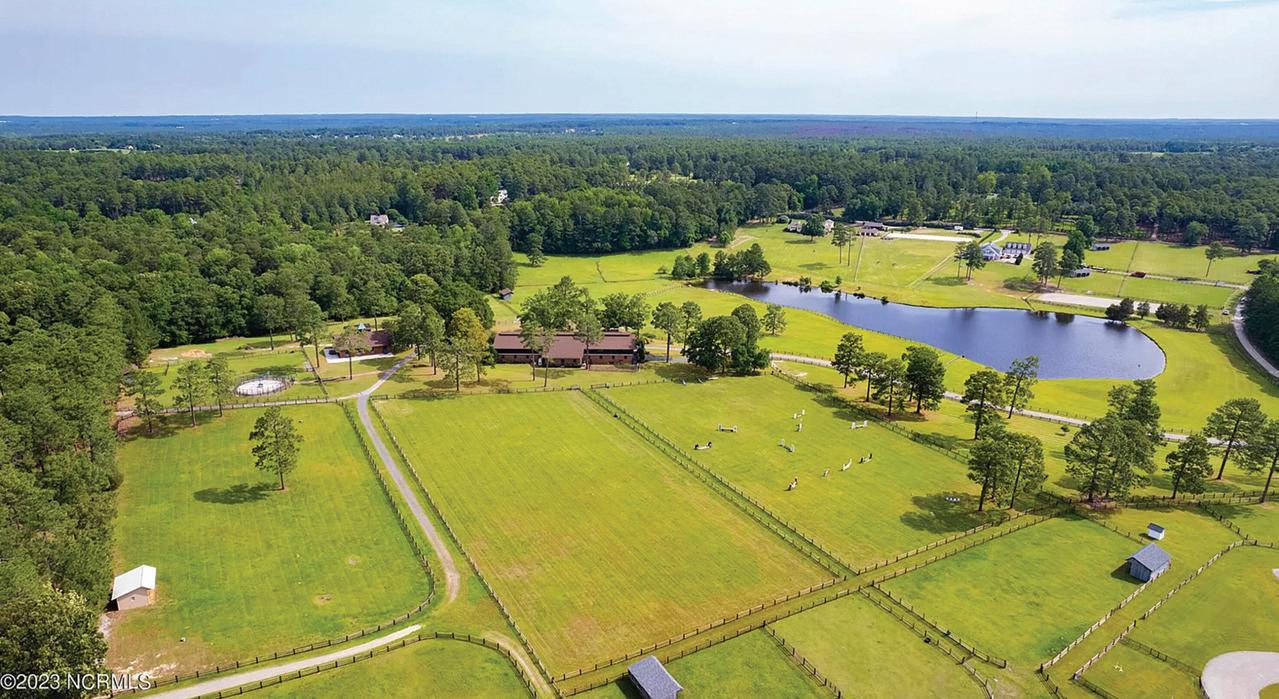
years, the market will experience fluctuations, but she says that Southern Pines has unique strengths. “Our equestrian properties attract a dedicated and growing community of horse enthusiasts, equine professionals, and those who seek a lifestyle centered around rural charm and outdoor activities,” she said.
Both agents agree that the biggest thing that sets Southern Pines apart is the foresight and dedication of Virginia Walthour-Moss.
“She had a visionary approach to preserving land for equestrian purposes,” said Wiggins. “When she began acquiring rideable land, she wasn’t just thinking of the present; she was crafting a legacy. By converting these lands into protected spaces, she ensured that equestrians would always have access to natural trails and fields where they could ride freely, away from the pressures of urban sprawl. Her commitment to safeguarding these lands has established a higher standard for our community, one that balances growth with conservation, and it is this balance that allows us to enjoy the best of both worlds—prosperity without losing the heart of our equestrian lifestyle.”
The location isn’t bad either.
“The beach is a short drive one way; the mountains are a short drive the other way. Most places don’t have that,” said Paschal. “And there are few places where you’re able to walk out the back door and ride all day.”

Today, when horse people talk about Tryon, they often mean Tryon International, a spectacular multi-disciplinary horse show and event facility in Polk County, the same county that includes the town of Tryon. Although Tryon International has been in operation for just a decade, it already has a worldwide reputation as the site of the 2018 World Equestrian Games.
Tryon International has become a focal point for equestrian competition in the Carolinas, but Tryon is about far more than just competition. Nestled in the foothills of the Appalachian mountains, it is a quaint town with a long equestrian history. It became a destination for horse lovers when Carter P. Brown, a horseman from Michigan, moved to the area in 1917 and purchased the Pine Crest Inn. Brown popularized the area by taking guests for rides in the mountains, attracting a thriving population of winter visitors. A horse community blossomed, and in the 1920s, Brown founded the Tryon Riding and Hunt Club, the Tryon Hounds and the Tryon Horse Show.
According to Linda Noble, a realtor at Looking Glass Realty who specializes in Tryon real estate, the availability of trails is a main draw for the area. There are two primary trail organizations, the Foothills Equestrian Trails Association (FETA) and the Collinsville Equestrian Trails
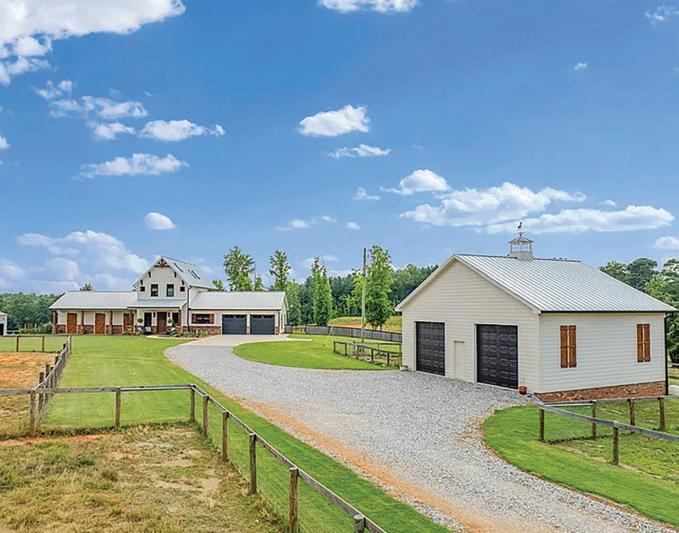

Association (CETA) that encompass tens of thousands of acres of trails that run across private land in Polk County, North Carolina and nearby Landrum and Campobello, South Carolina. Only landowners and their boarders can join the association and use the trails, which are valued as an unequalled resource. Noble also cites Tryon International and the Foothills Equestrian Nature Center (FENCE) as major attractions.
“If you’re a dressage rider you can go to Tryon International and get all your points at the shows there; if you are an eventer, they have a great cross country course. And FENCE, has a really nice cross country course, which is open for schooling a good bit. So there’s lots of space for training, and you can go enjoy international level competitions, and see people from all over the world,” she said.
Equestrian properties are so sought after in Tryon, it might seem nearly impossible to buy there. “It’s very, very hard to find anything that you can keep horses on for under $500,000,” said Noble, noting that the smaller farms sell immediately.
“When they do come on the market, they go fast. And a lot of our sales are hard to track, because farms will sell before they even go on the
open market. There’s about 10 of us brokers who sell horse farms, and one will tell another that someone is getting ready to list a farm, and we’re ready to say: Okay, I’ve got three customers for that. So a lot of times, a farm doesn’t even make it to the market. If you’re looking, it’s best to have a broker looking for you outside of the Multiple Listing Service. We do have a lot of farms, but we also had a huge influx of people come here in the last five years.”
Tryon has its share of available multimillion dollar farms and estates, just waiting for the right person to come along. They might have indoor and outdoor arenas, acres of turnout and custom homes with every amenity. But horse people in Tryon say that where they live is ideal, whether they have a farmette or a spectacular mountain hideaway.
“It’s just a really convenient place to live if you are a horse person,” said Linda Noble. “We have tack shops and Tryon Veterinary Hospital, which is a regional surgical center, and the Tryon Riding and Hunt Club, which is a social group. We have a number of horse rescues, excellent places to get hay and grain and equipment. It’s a kind, nice place to live, and it has a real, genuine sense of community, and that’s really special these days.”

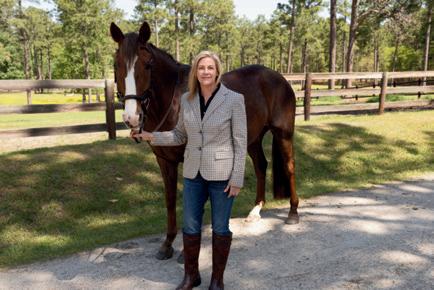



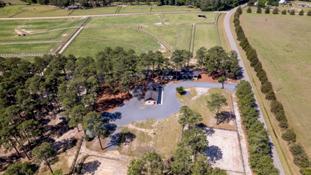
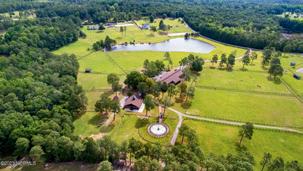
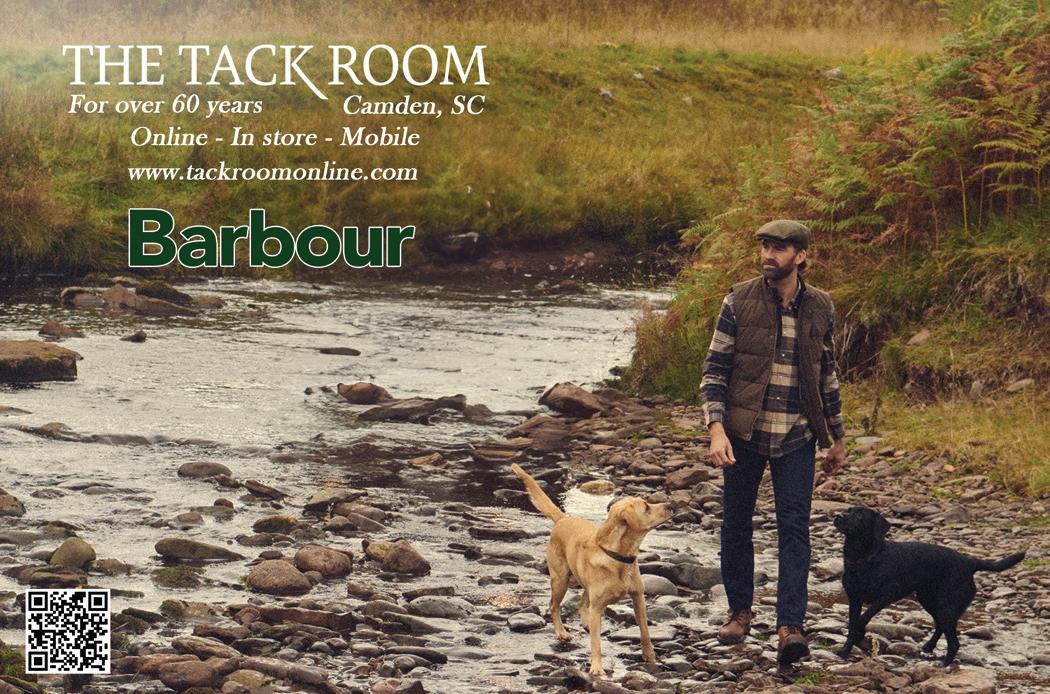
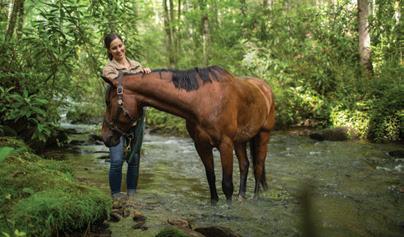
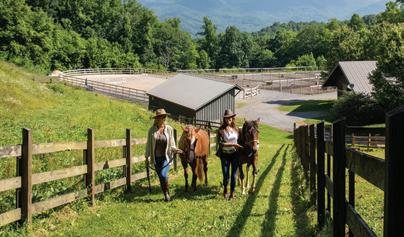
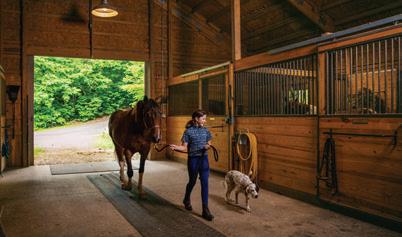
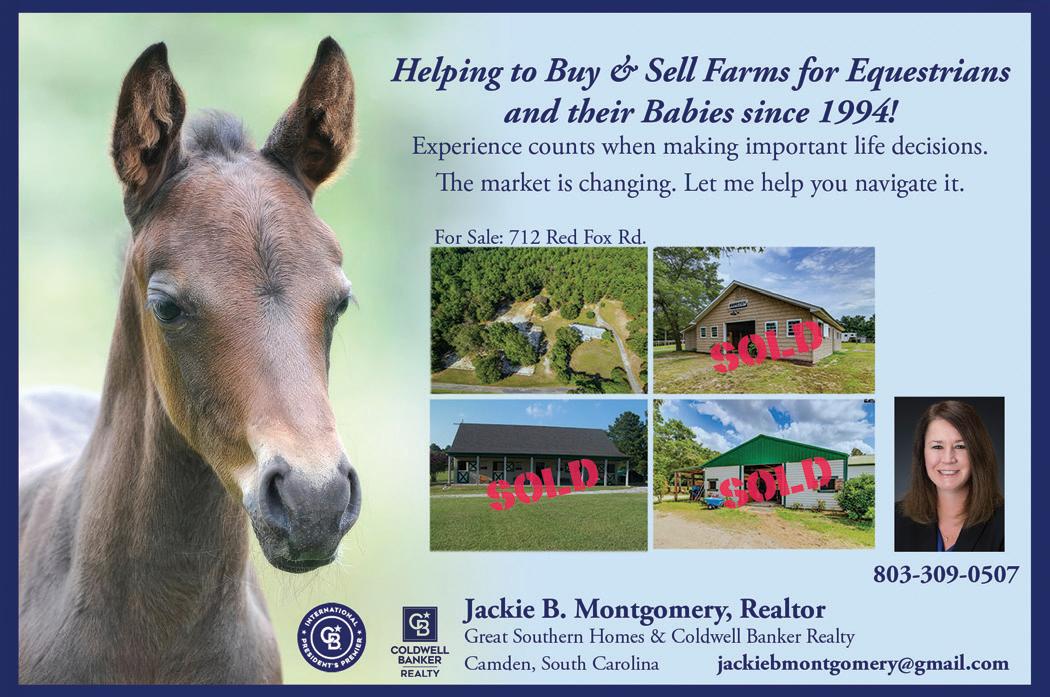

By Lauren Allen
Imagine a horse farm, and what do you see in your mind’s eye? Horses, certainly, but also probably trees, grass, fenced paddocks. The riding arenas, trails and pastures that horse riders enjoy take up space. However, as people and houses continue to multiply, space is becoming increasingly desirable and expensive. Real estate development puts equestrian communities in the Carolinas and everywhere else under pressure as the hunger for houses threatens the open spaces and large tracts that are essential to equestrian sport.
Many of the equestrian communities in the Carolinas are historically significant and there is inevitable tension in any historic community between necessary growth and a potential loss of identity. Camden, South Carolina is a prime example. As the oldest inland city in the state, and a pivotal site during the Revolutionary War, Camden has many historic landmarks.
Camden was blessed by soft, sandy footing and the area became a popular destination for wealthy elite equestrians of the 19th and 20th centuries who migrated south in the winter to take advantage of the climate and terrain that was so ideally suited to horses. Fox hunting, steeplechase racing, show jumping and polo all flourished in
Camden, but now some of the areas that have been used for equestrian purposes for over a century are facing the possibility of destruction. Some longtime equestrian playgrounds, such as the Camden Polo Field and the Camden Training Center have attracted the attention of developers.
These open spaces have become a rallying point for citizens who want to preserve Camden’s unique equestrian identity. Citizens came together to preserve the Camden Polo Field in the late 1990s, and it was protected in perpetuity in 1999 by the Palmetto Conservation Foundation, and acquired as a national landmark by the American Battlefield Trust in 2022. But in 2023, plans were unveiled to develop an 800home subdivision on land nearby that is now the historic Camden Training Center.
Hundreds of residents and business owners gathered in opposition to this proposed development, and “Horses Not Houses” bumper stickers began appearing around town. The objections ranged from reservations about the increased burden on roads and schools to appreciation for the beauty and history of the wooded 360-acre tract that has served as the training ground for some of the most important horses in Thoroughbred and steeplechase racing
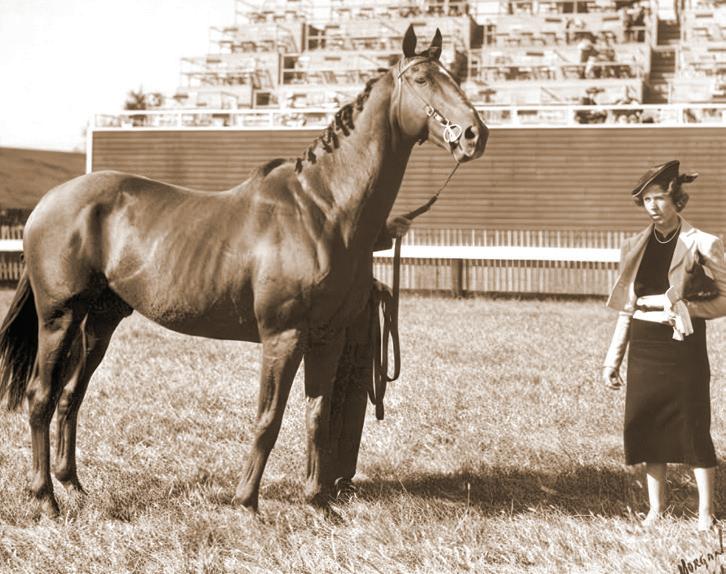
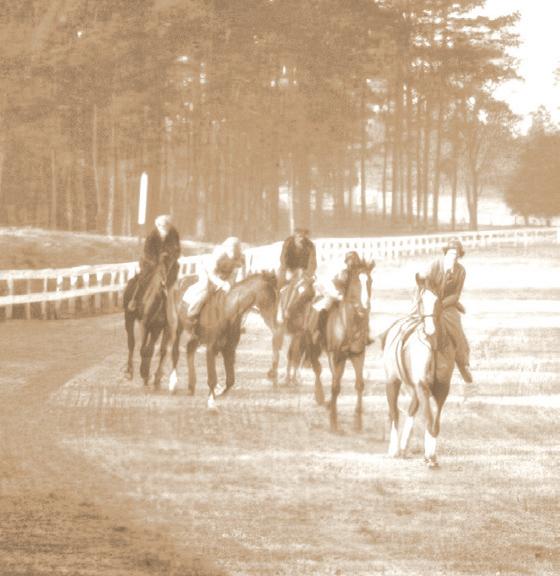
– horses such as Damascus and Forego. The Camden Training Center was originally part of the 1000 acres owned by Marion duPont Scott and dedicated to equestrian sport, which also included the Springdale Racecourse, site of the Carolina and Colonial Cup Steeplechases.
Linda Kanatzar is a longtime Camden resident and horse trainer, rider, judge and show manager. “These historic properties help tell the stories of the wonderful people and horses who have given the Camden area such a unique and special character,” she says. She mentions Marion duPont Scott’s horse Battleship – “Still the only horse in history to win both the American Grand National and England’s Grand National steeplechase races.”
She continues, “Many champion racehorses and show horses have come from the different training centers and private stables. The polo field just off Polo Lane is the second oldest still active in the U.S., and the Camden Horse Show, run by the Camden Hunt is the oldest horse show in our state.”
Last fall when plans were submitted to the Camden Planning Committee to annex and develop the Camden Training Center, Linda Kanatzar was one of the people who spoke out against development. She and other concerned
citizens formed groups, gathered petitions, and attended and spoke at both city and county council and planning committee meetings.
“By becoming involved over the Camden Training Center and other proposed developments, we are now better informed as to what can be done to preserve our historic, cultural and equine properties. It is vital to elect five city council members and seven county council members who are committed to protect and preserve our valued properties. These people appoint the planning committees and employ the planning and zoning staff who approve or deny permits for the proposed developments. Much of our success is due to focusing attention on the city and county comprehensive plans. Both our city and county council websites post their meeting dates with agendas – it’s an easy way to keep up with these current issues.”
Establishing historic landmark status where possible and forming conservation trusts are important elements in preserving the past and protecting natural spaces. Being informed, involved and vocal about the value of equestrian places, both past and present, may be the key to holding on to the green spaces that horses and horse lovers, love.

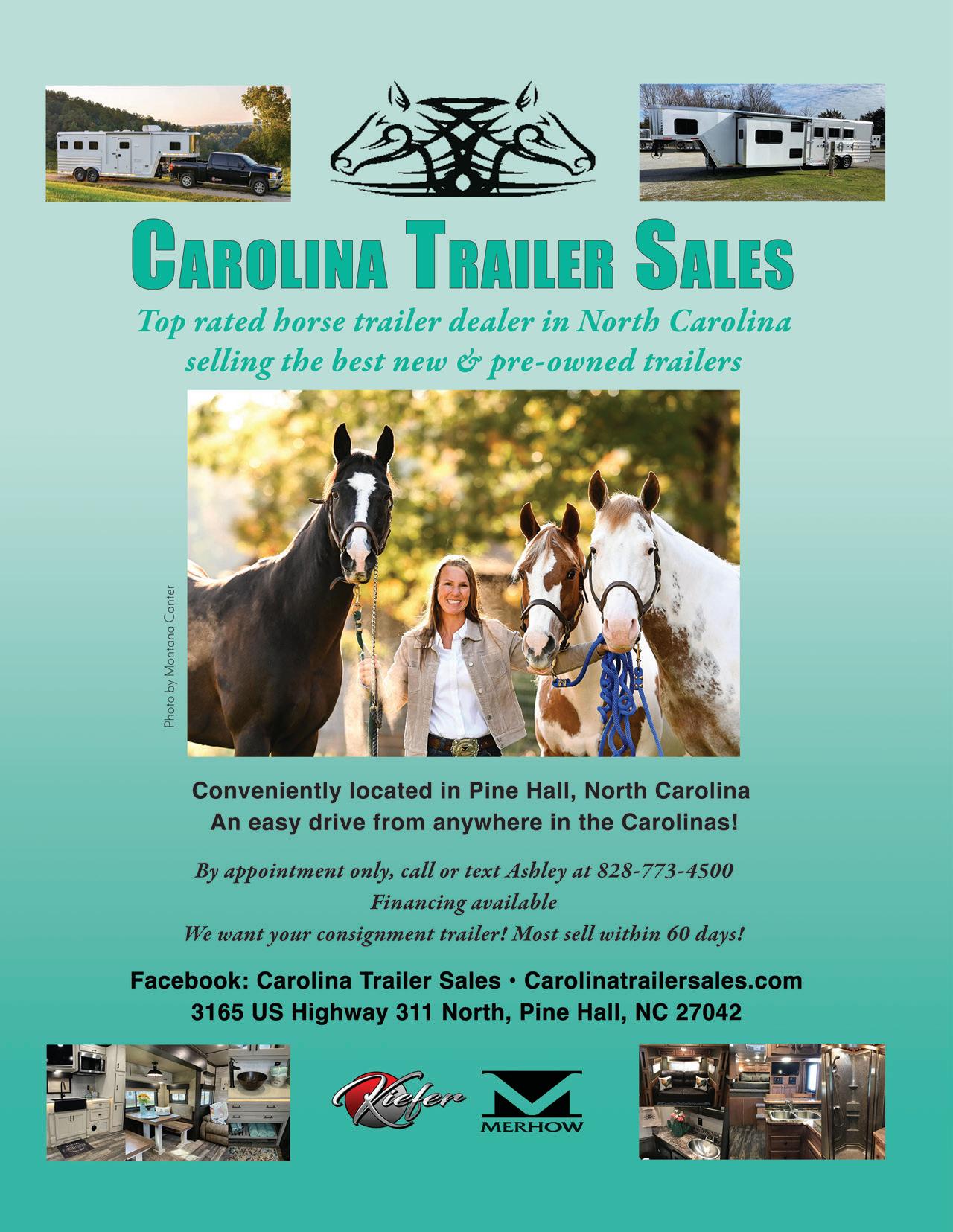
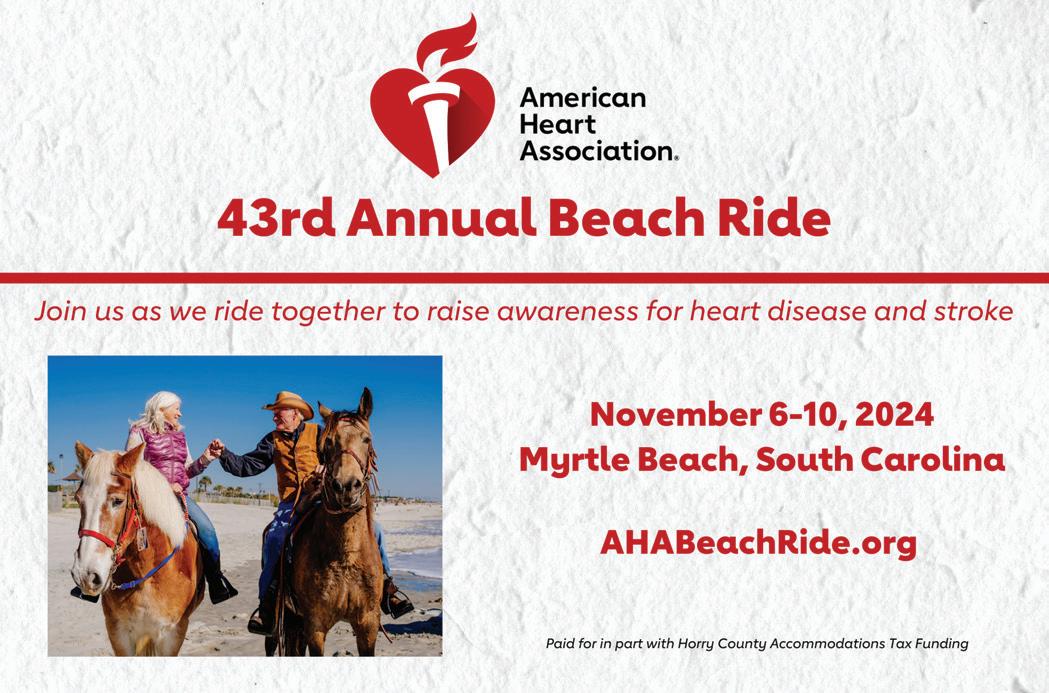
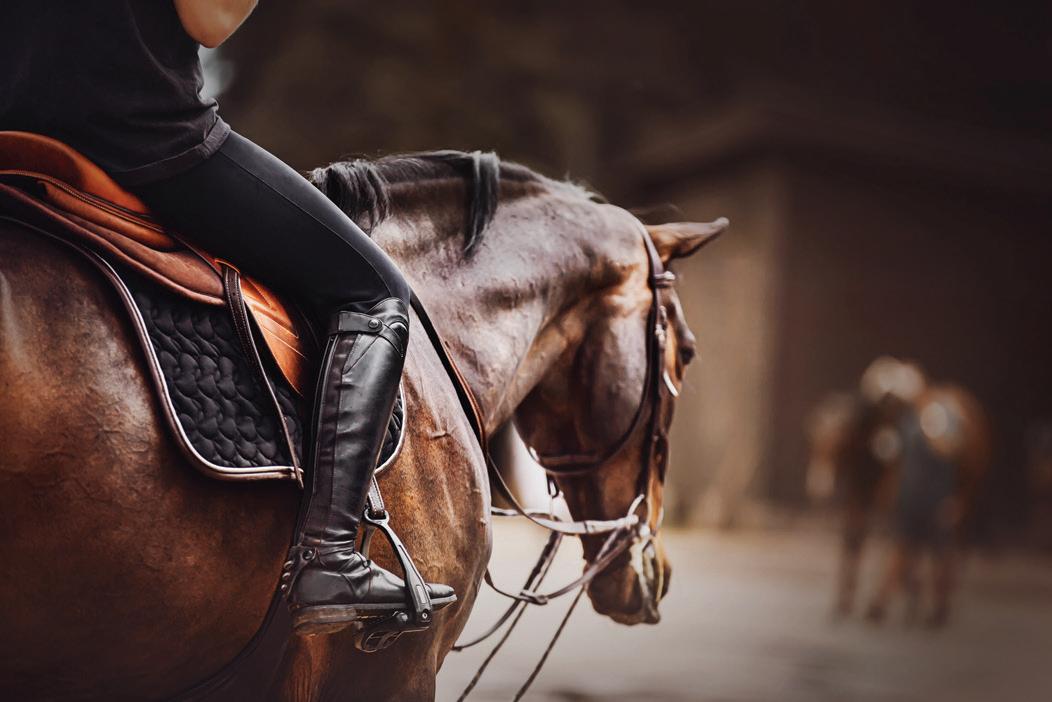

By Pam Gleason
OnNovember 5, 2024, horses and riders will begin to arrive at the Lakewood Camping Resort in Myrtle Beach, South Carolina for the 43rd annual American Heart Association Beach Ride. The ride, which runs until Sunday, November 10, draws participants from the Carolinas and beyond: from Ohio, Tennessee, Kentucky, Virginia and more. According to the American Heart Association, a typical ride attracts 1,000-1,200 people, and includes various activities over the five days, culminating in a 20mile group ride on Saturday, November 9.
This is the only time of the year that horses are allowed on Myrtle Beach, and it is all for a good cause. The ride is one of the biggest fundraisers for the American Heart Association, with a goal of accumulating an impressive $500,000 for heart disease research, education and advocacy. In order
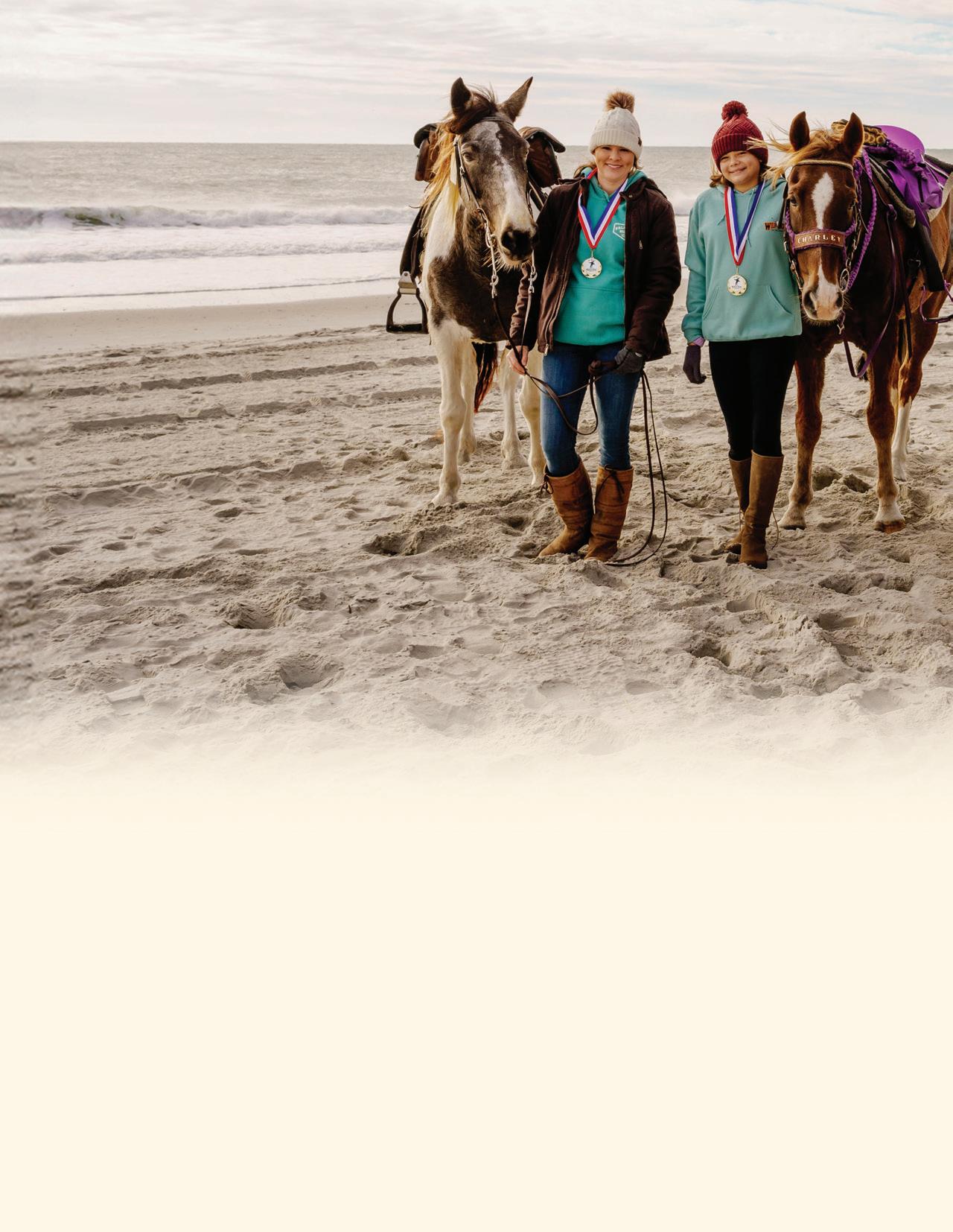
to participate, every rider must bring a donation for the AHA: the amount varies depending on when you register and whether or not you are part of a saddle club with a group of 15 riders or more. An individual must bring in $250 if they pay before June 30 and $325 afterwards. Riders may make the donation themselves, or they may ask their friends to sponsor them. Riders who raise $1,000 or more are considered Beach Ride Superstars. Superstars have the privilege of checking in early, and this year they can enter a sweepstakes to win a new Valley Trailer, donated by Carolina Trailer Sales in Pine Hall, North Carolina.
Ashley Sisco, who owns Carolina Trailer Sales, says she learned about the beach ride from a customer eight or nine years ago.
“I had never heard of it,” she says. “I went that
year and I was hooked. So I’ve stayed camping every year with customers new and old.” Sisco says that she loves the camaraderie of the event, and that raising money for the American Heart Association is especially important to her. “My dad had a heart attack at 47, so he’s a survivor.” In the past, a trailer manufacturer used to donate a prize trailer, but for the last few years, there has not been one at the ride. This year, Sisco stepped up.
“I am donating a trailer as a dealer. It’s red, so that’s kind of fun!”
Aside from the Saturday beach ride, the event includes a vendor village, costume parade, karaoke, silent auction, t-shirt contest, live music, and more. Participants will also have the opportunity to join the “Nation of Lifesavers” by learning hands-only CPR. A “Lifestyle Change Award” will be given to an attendee who has made
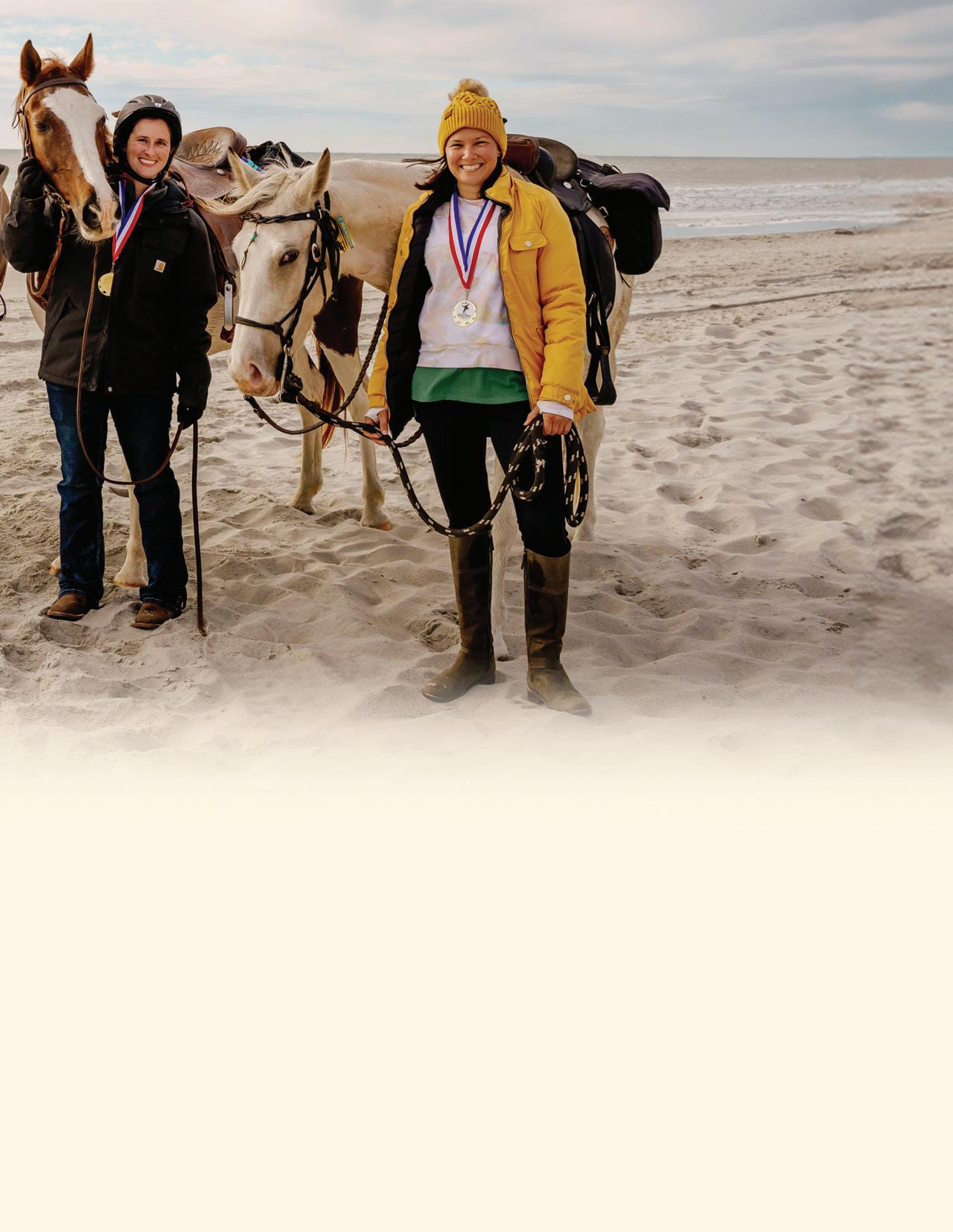
positive changes to improve their health and quality of life.
The American Heart Association calls itself “a relentless force for a world of longer, healthier lives … Through collaboration with numerous organizations, and powered by millions of volunteers, we fund innovative research, advocate for the public’s health and share lifesaving resources.” The association is based in Dallas, Texas and is celebrating its centennial year in 2024. “As we forge ahead into our second century of bold discovery ... our vision is to advance health and hope for everyone, everywhere.”
Connect with the AHA on heart.org, Facebook, X or by calling 1-800-AHA-USA1.
For more information about the Beach Ride, visit www.AHABeachRide.org or contact MyrtleBeachSC@heart.org.

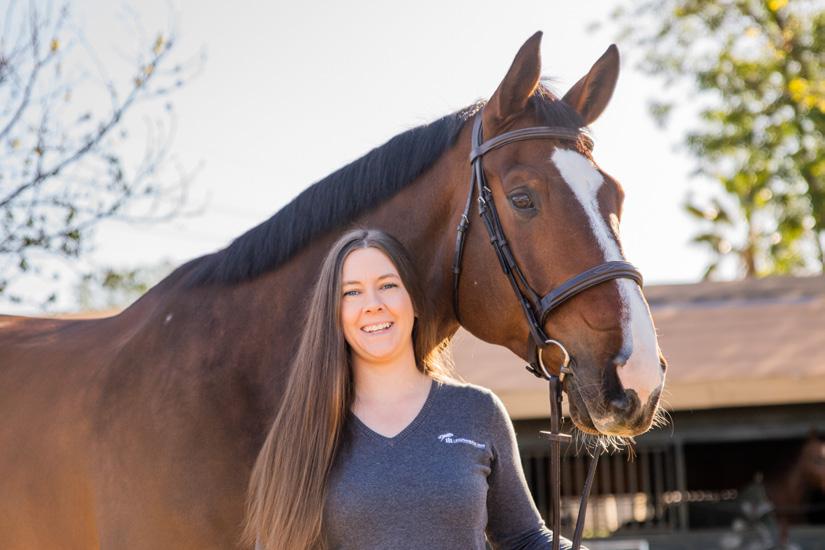
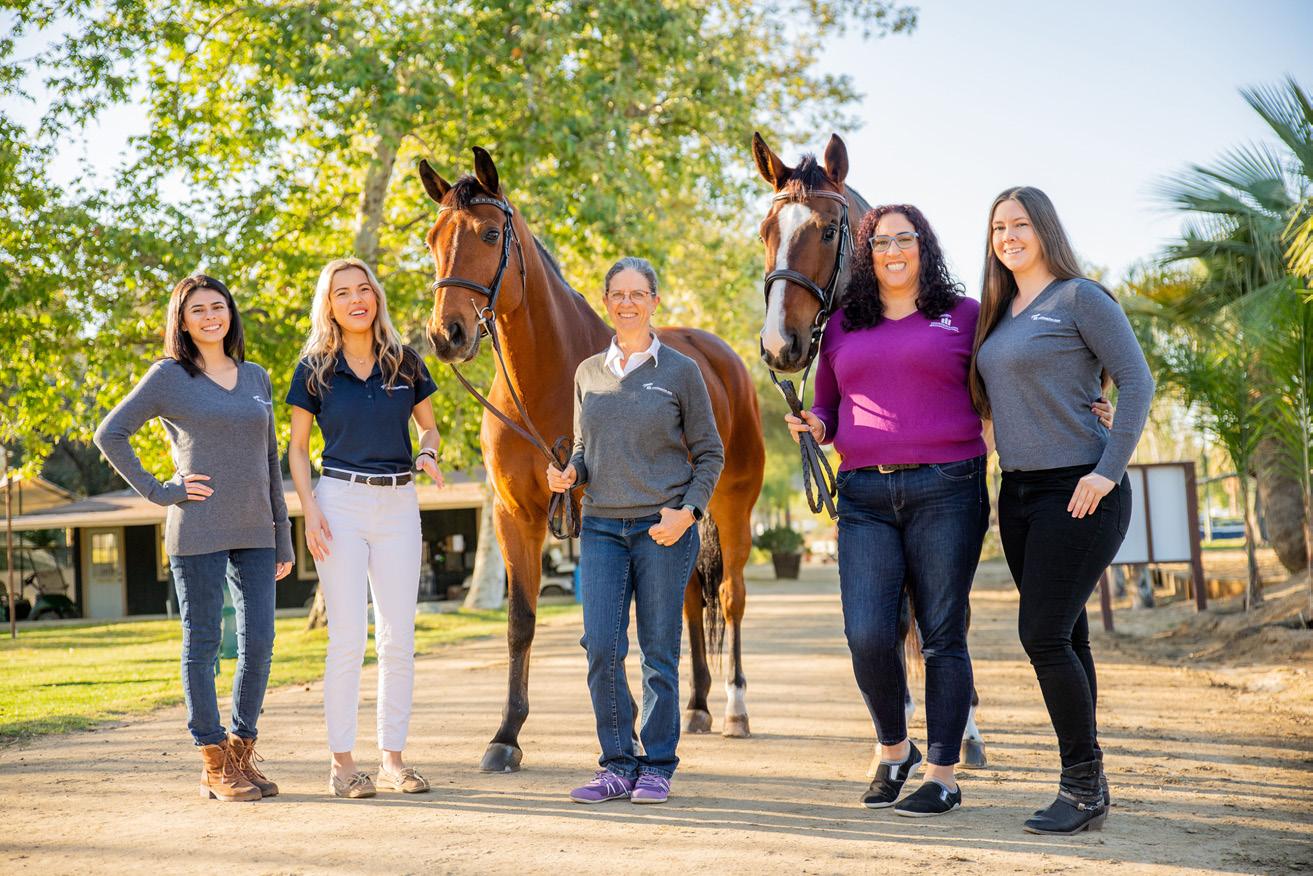
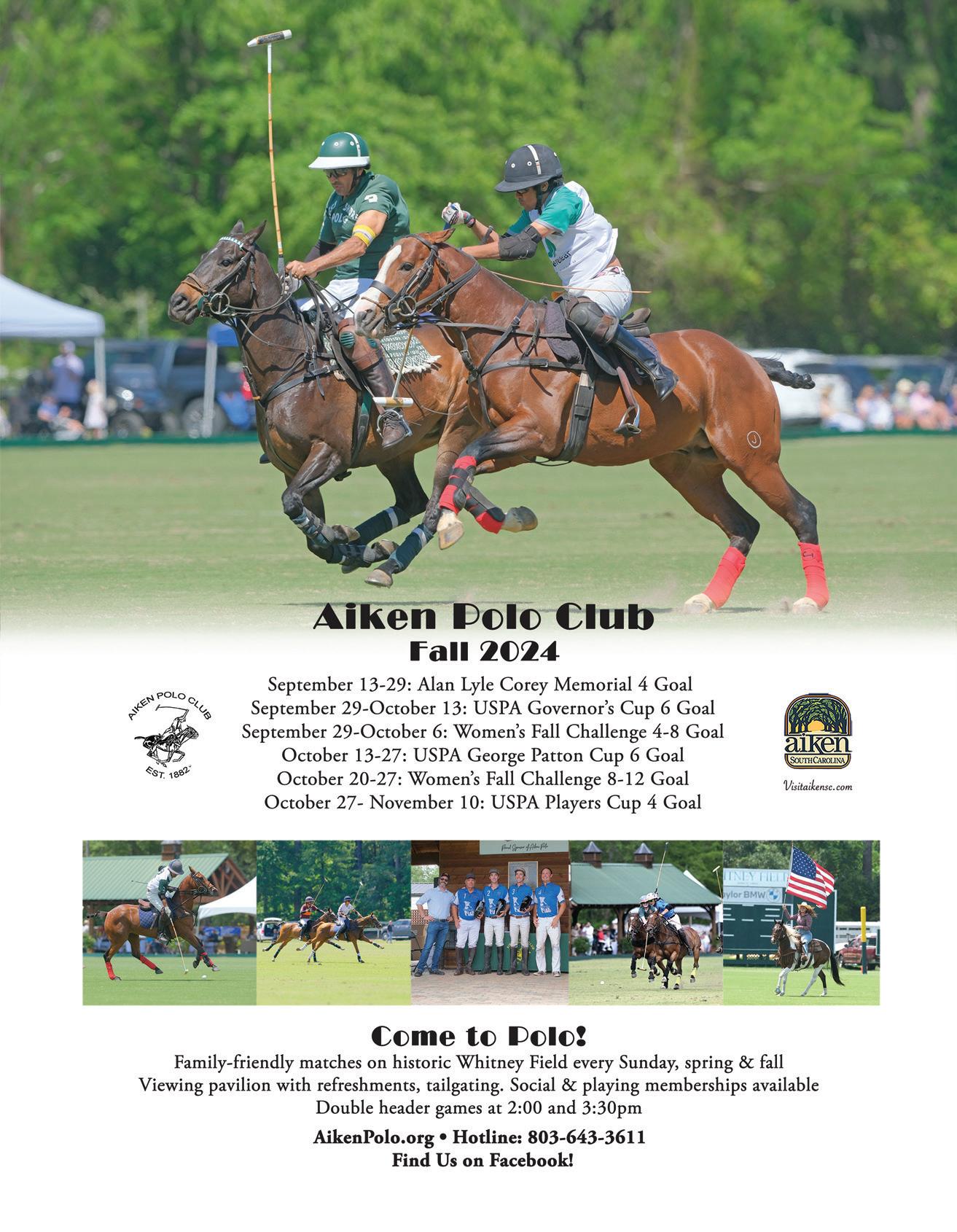
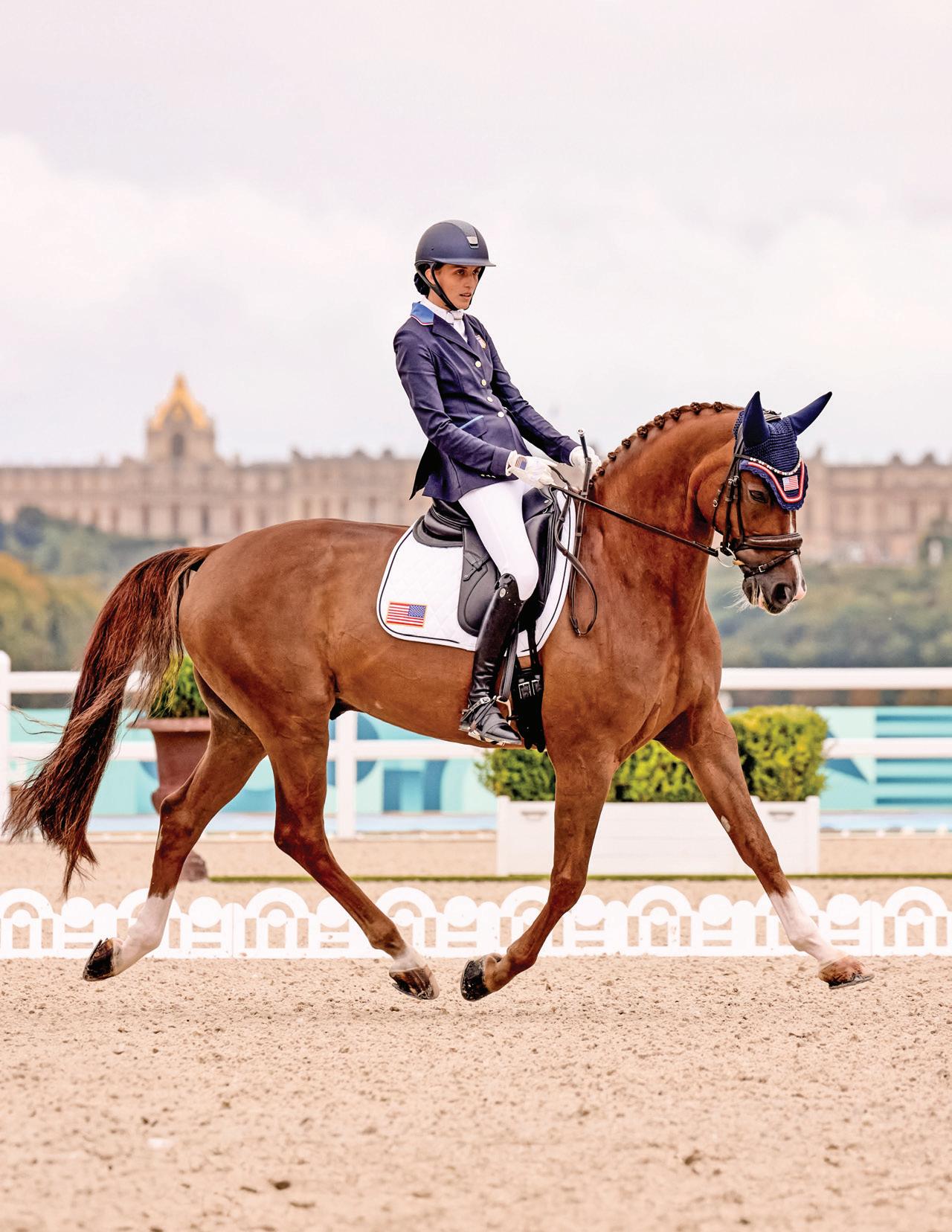
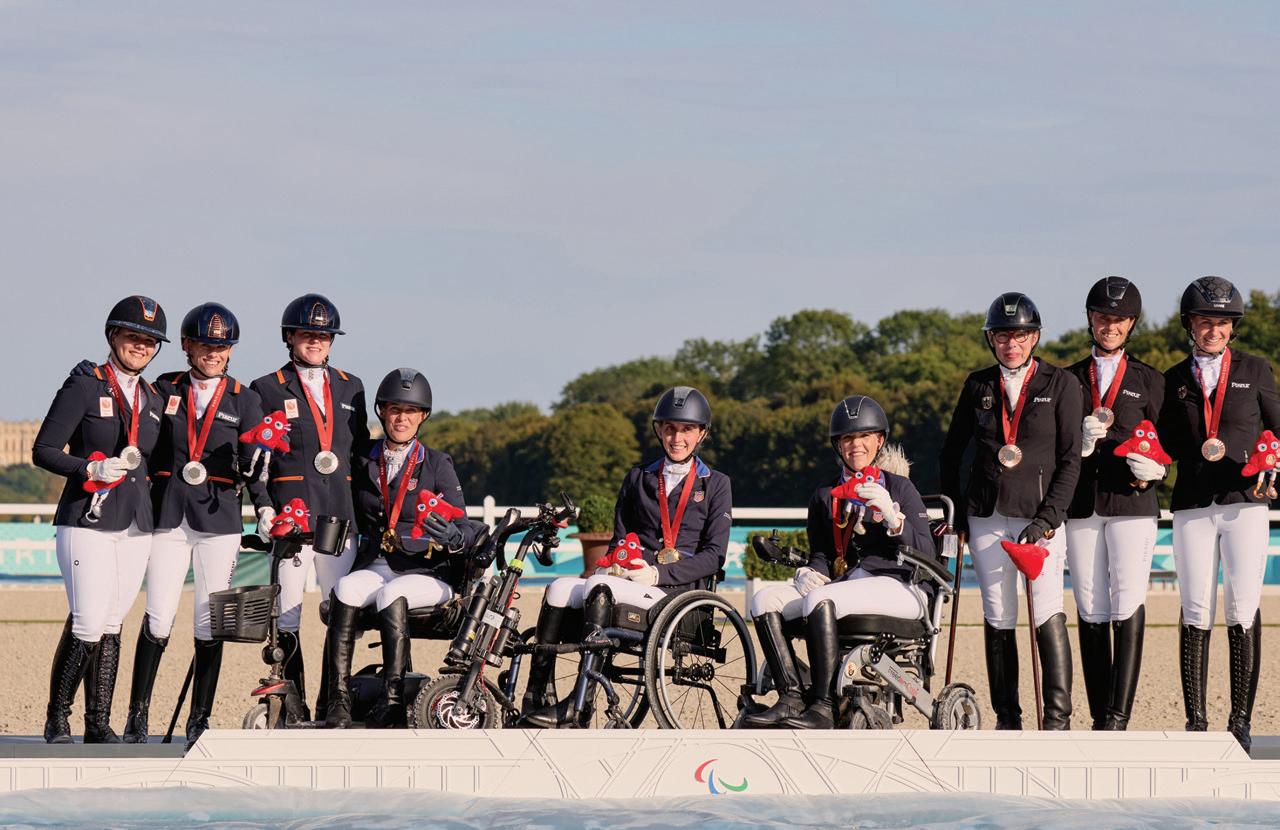
by Sally Spickard
The three gold medals Fiona Howard won at the 2024 Paralympic Games in Paris mark her highest riding achievement to date, and are a testament to a series of personal victories.
Howard was born in England to a British father and an American mother, growing up mostly in London, but also spending time in the United States, including in Southern Pines, North Carolina where she rode in some of her first horse shows. She is currently based primarily in Wellington, Florida with her coach and fellow para equestrian rider Kate Shoemaker. This September, she represented the United States at the Palace of Versailles riding for the United States para-dressage team in the Paralympics.
Howard began riding when she was 4, naturally gravitating toward horses in the way of many equestrians. She became enamored of the sport of reining, and when she was 14, she won a bronze medal as part of the British Junior Reining Team in the 2013 FEI European Reining Championships for Juniors and Young Riders. Yet, alongside this early success in riding, Howard was fighting a battle that would change her life forever.
As Howard grew, she experienced a run of near-constant injuries and suffered from slow development in fine motor skills. Her legs lengthened in a way that caused her bones to cave inward instead of growing straight, and she went through several severe illnesses that permanently damaged her digestive system. When she was 16,
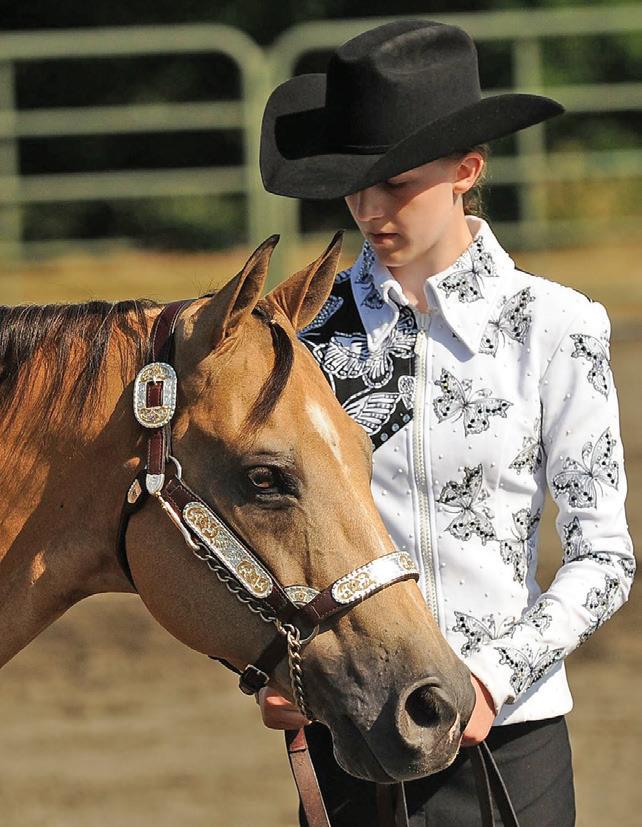
she was referred to Boston Children’s Hospital in Massachusetts, where she was diagnosed with dystonia, a neurological disorder that causes involuntary muscle spasms.
Despite spending the equivalent of over two years in the hospital, Howard persisted. An active, athletic person, she kept her brain busy by enrolling in Northeastern University, from which she graduated with a degree in psychology in 2021. When she was able to, she returned to horses. At first, she just visited the university’s riding team stables as a non-riding member, but eventually, she got herself back into the saddle.
“I think I’ve always been very driven,” Howard reflected. “If someone says I can’t do something, I’m like, ‘let me show you what I can do.’ I think I’ve been told ‘you can’t live an active life with everything going on’ so many times, and it just kind of added to the fight and drive and determination. It was like my brain wouldn’t quit.”
These character traits drove her to get back to riding, the thing that had always made her the happiest. It would be an uphill climb: as her dystonia took the use of her legs, Howard needed to learn to ride again from the beginning.
Para dressage competition includes five levels, ranging from Grade I (the most severely physically impaired riders, who compete in tests that are walk-only) to Grade V (riders who are able to use their bodies to perform tests that include all three gaits as well as lateral work.) Howard’s condition put her in Grade II, for athletes with severe impairment of the trunk and minimal impairment of the upper limbs, or moderate impairment of the trunk, upper, and lower limbs. Grade II riders perform tests that include walk and trot movements.
“There was a lot of frustration,” Howard recalled of learning how to adjust to what her body could do. “It was really hard, especially that first year and a half that I came back. There
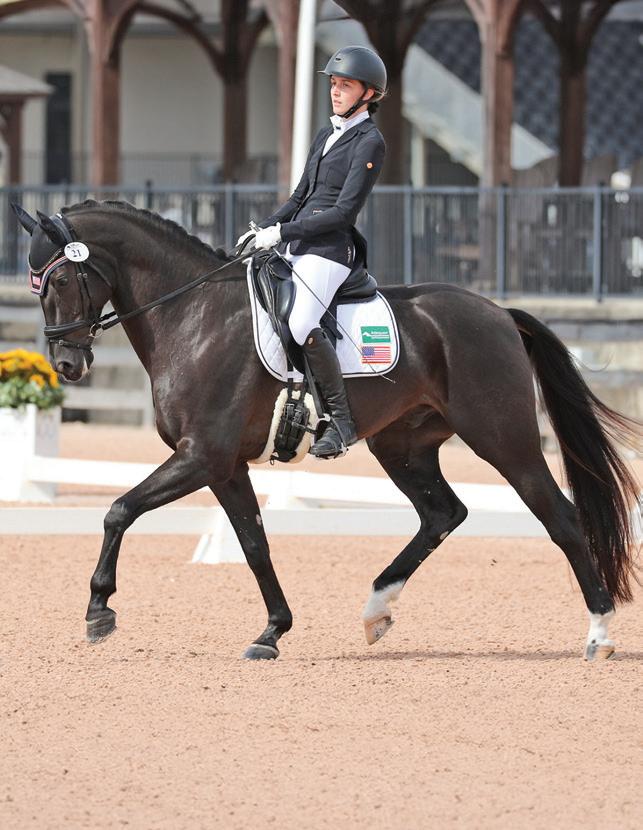
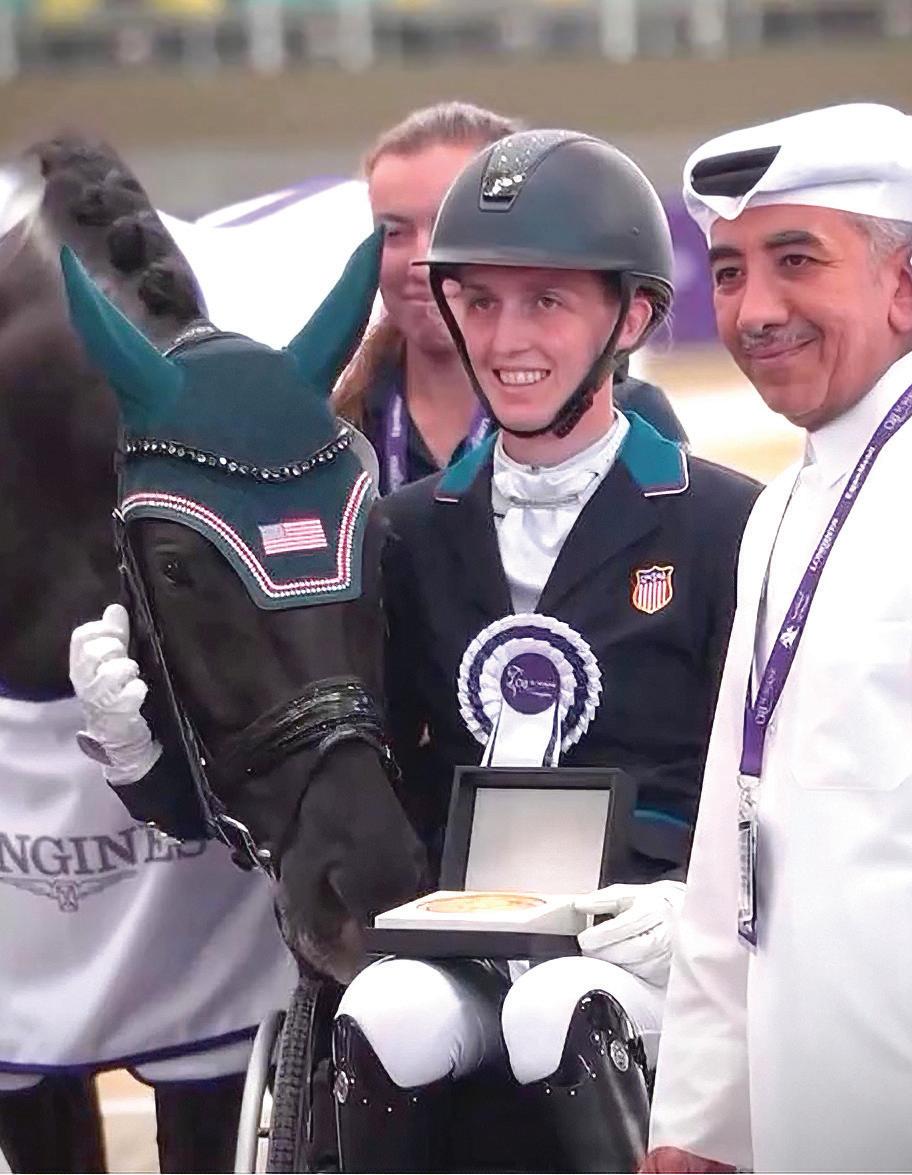
was a new level of frustration that I didn’t expect because I knew how to ride, and would know exactly what I wanted to ask, but my body wouldn’t do it.”
In the beginning, making it to the Paralympics wasn’t even the faintest idea in her head. For her, returning to riding was like coming back to life. Here, she credits both her background in riding and the help of Kate Shoemaker.
“I do think there are things you still are able to do, particularly with your seat and your core,” Howard explained. “But we did do things like tie my feet to my stirrups so my legs didn’t just go off on their own. It was definitely frustrating and hard, but I also knew that horses were allowing me to actually live. That made me try harder.”
In 2022, Howard returned to FEI competition, this time in the para dressage arena. She enjoyed immediate success, finishing second in her first three CPEDI3* classes and earning her first FEI para dressage victory her next time out. By the end of the year, the buzz was out: Howard was back.
Were the Paralympics on Howard’s radar yet? Not quite, she admits.
“When I first started coming back to FEI competition, I really was just wanting to do the best that I can do and kind of focus on being as good as I can be, personally,” Howard said. “I really didn’t come into it like, ‘I’m going to go to the 2024 Paralympics,’ which I think surprises some people because I do think a lot of people enter the sport with the goal of going to the Paras. I didn’t come into it that way in 2022. I really just appreciated it and was thankful to even get back to the FEI ring.”
But the wheels were in motion. Howard was invited to compete in Qatar in 2023 with her top horse, Jagger, and Paris became more than just a notion. She remained in Europe, competing nearly every month in 2023 and the first half of 2024 on a small string of horses, including her eventual Paris partner, Diamond Dunes. Then, in June 2024, Howard was named to the U.S. team.
In Paris with the team veterinarian, Dr. Kimberly Snyder
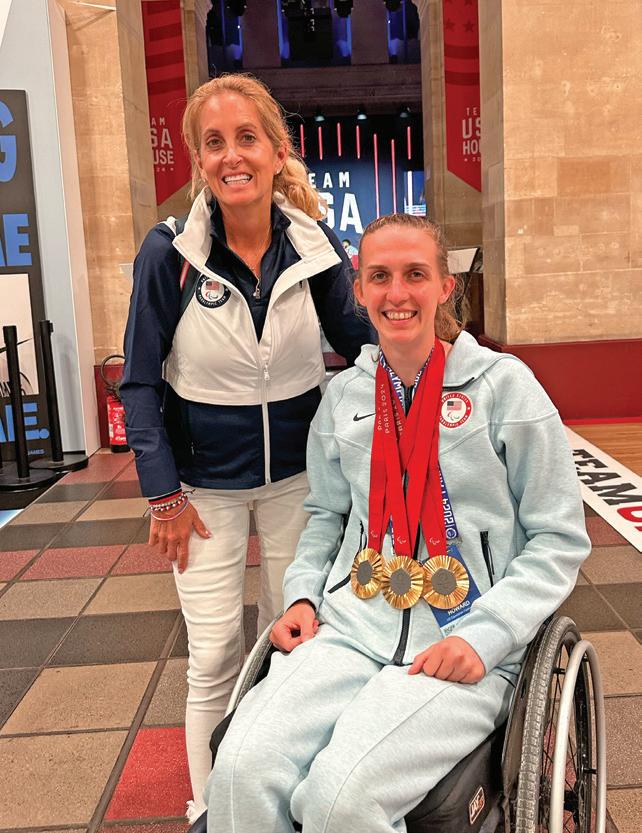
“I don’t think it really sunk in that I had been selected,” Howard laughed. “Maybe it did at the opening ceremony!” She paused for a moment. “But I do think a lot of it is because, yes, in the back of my head, I kept saying I wanted to go to Paris, and of course I did. But the main focus was just working harder every day and trying to improve. So I’ve tried not to focus too much on Paris. It was about my horses, and how I could partner with them better every day, and let that speak for itself.”

Paris wound up being historic for the U.S., as the nation collected its first-ever team gold medal in para dressage, signifying growth in the program helmed by chef d’equipe Michel Assouline. Howard contributed to the gold medal alongside her teammates Roxanne Trunnell (Fan Tastico H) and Rebecca Hart (Floratina). She also won the individual gold in Grade II and the Grade II Freestyle making three gold medals in all.
“I knew my horse was talented enough to medal,” Howard said. “I knew he had what it takes, but I didn’t know how it would play out on the day. I had to go in and ride the best I could in the moment, and I knew if I could do that,
whatever the score was I would be proud. Winning gold? Wow, how did that really happen?”
Here, Howard credits the support team that has kept her and her horse, Diamond Dunes, thriving and ready to compete. “Dunes”, she says, is a one of a kind horse. In fact, he had not had any para dressage riders or experience when he first came to Howard.
“He just is the most genuine horse,” she said. “From the moment I got on, he was trying to learn exactly what I was asking. He picked up on my voice cues very easily. And I’ve always said my horses come first. They have to be happy doing this, too, and he really was. So I really let the horses lead the way and my focus has always been to have happy horses, then results.”
Howard looks back on the winding road that’s brought her to this point – this unfamiliar place where, in some moments it will suddenly occur to her that she just won three gold medals in Paris. It may not have been her goal from the outset, but it is the culmination and the validation that yes, she is good enough, and she is worthy of a full and active life.
“What I have struggled with is the feeling of, am I enough? Am I doing my horse justice? Am I good enough? There were many days where I was like, ‘why am I trying to do this?’
“But the truth is I was surviving. I wasn’t living,” she said. “And staring that in the face so many times, I just thought, ‘My life is worth living.’ My life has a purpose. It has to have a bigger purpose than this. And the horses have just helped me get up every day. They gave me confidence in myself again, that I could live an active life. And what did I have to lose? There was a lot of acceptance and adapting involved, but I had nothing to lose.”
Truly, Howard says, the horses have given her what her body cannot. “When you have a disease that’s crippling your body, but your mind is still there, it’s difficult because I’m watching myself go from opening a jar to now I can’t do that. It’s those little frustrating things. Horses give me the freedom that my body doesn’t. The horse allows me to borrow the legs that I don’t have. And this sport has been so healing in that aspect.”




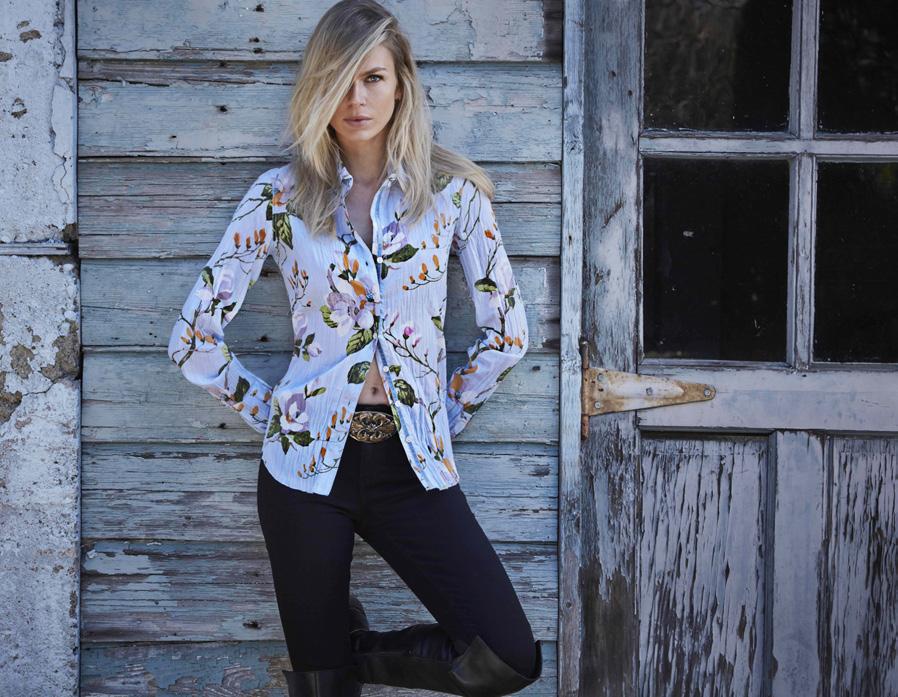
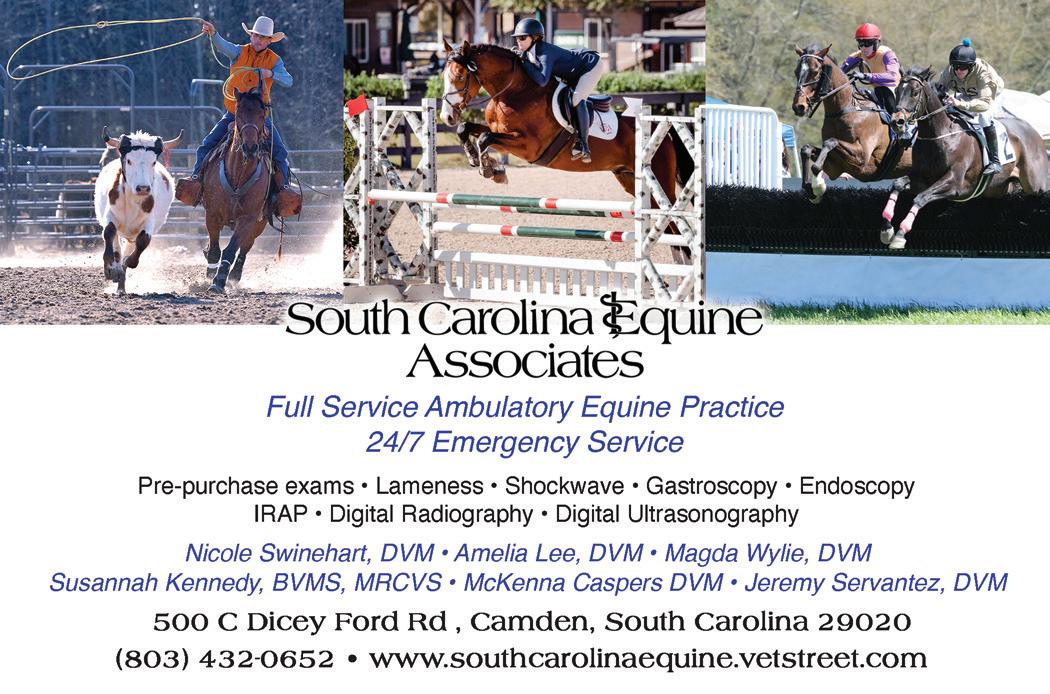
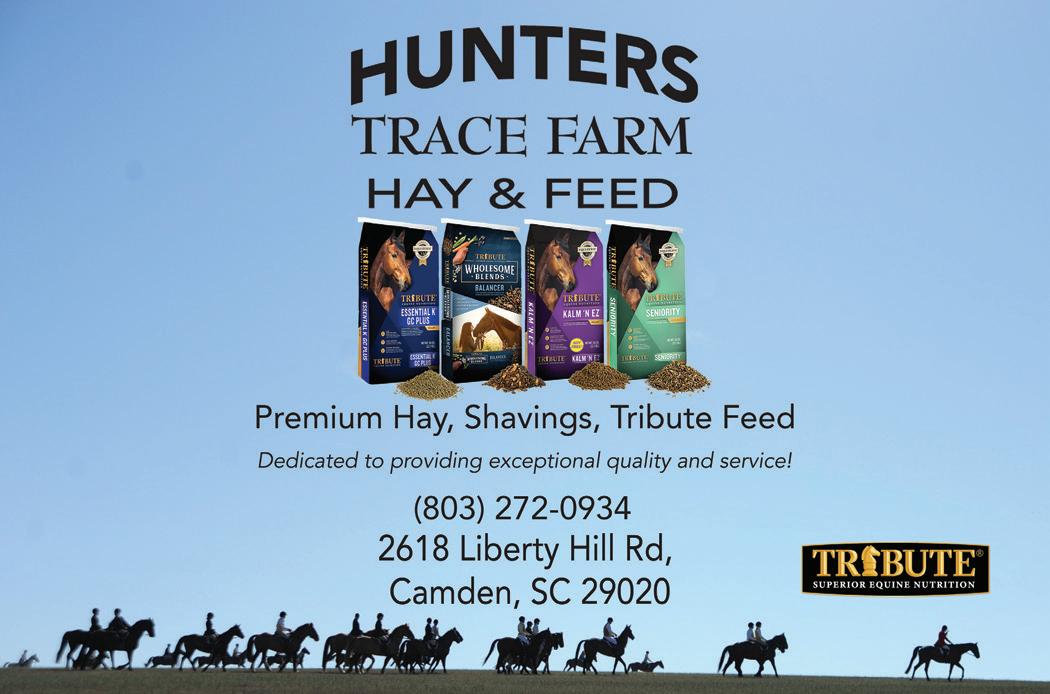
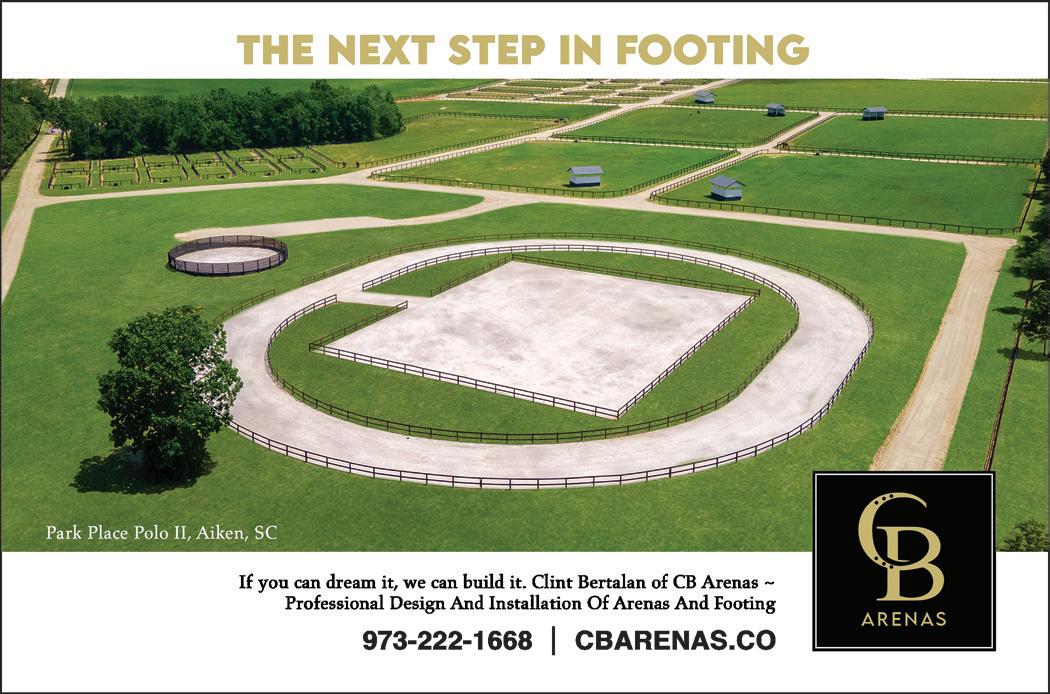


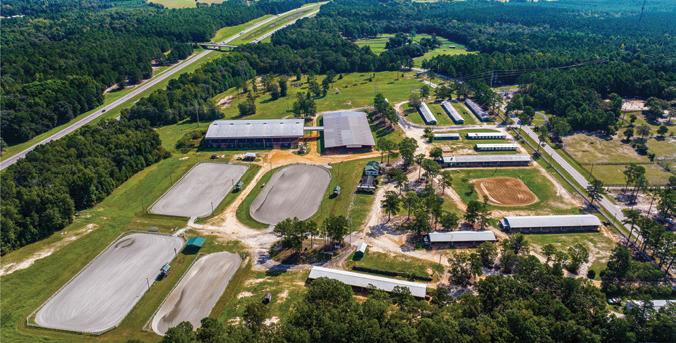


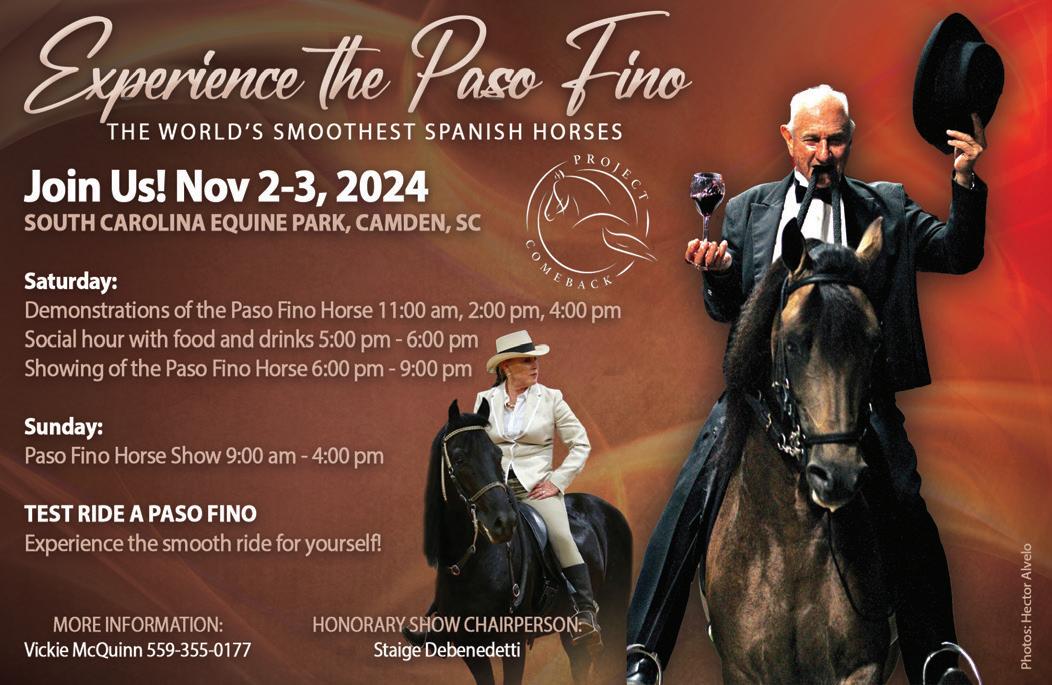


by Lauren Allen
Paula Metcalfe’s flair for design, her artistic abilities and her appreciation for the timeless appeal of equestrian images led to the creation of her one-of-a-kind furniture business. Charleston Chalks, based in Charleston, South Carolina, offers horse lovers hand-painted furniture and decorative items with equestrian images. Each piece is unique and handmade: selections range from new to reclaimed furniture with a variety of options, including custom images and a choice of chalk paint finishes.
A retired interior designer, Metcalfe grew up in West Virginia and went to Winthrop University in Rock Hill, South Carolina. She earned her Bachelor of Arts in interior design and then completed her American Society of Interior Design certification. She moved to Washington, DC and worked for a design firm for several years, riding horses at a nearby farm. Eventually Metcalfe moved to Charlotte, North Carolina to open her own design firm for model homes in
Lake Norman called DesignSource. It was there that she first began to work on furniture. “I would hire artists to do murals or artwork on furniture,” she says, “And it was one of those things where an artist would move, or be too busy, and I started to fill in the gaps and do it myself.”
Meanwhile Metcalfe married, raised four children, and she and her husband purchased a beach property in Folly Beach, South Carolina, near Charleston. “We would come to Folly, and we always knew we wanted to retire in Charleston.” They also bought other properties to rent out, and one of them was in Tryon, North Carolina. When it came to outfitting the house, she knew just what her theme would be. “We bought it before the World Equestrian Games were held there, and I did it all in equestrian art, just shameless!” she laughs.
“It rented so well that it really was sort of an ‘aha’ moment—I just started focusing on equine furnishing. It’s a small world. I would do a piece for someone in Tryon and then their friend in
Charleston would find me. Being on the Eastern Seaboard is so nice because people are travelling, going from Wellington or Ocala up to Middleburg - someone is always coming through. It just became a word-of-mouth thing. And somebody would get one piece and then they would get another piece – I have some clients that have eight or nine pieces.
“I am very affordable. I don’t have anything that’s over $200. That lets people get a piece with their heart horse or dog and they don’t have to sell a kidney. I love doing this. It’s more than a hobby, but it’s something I really enjoy. I have a shop in my home; all the kids have left now so I have plenty of rooms to fill with furniture.”
Metcalfe has sold pieces at Aiken Saddlery in Aiken, and the Tack Room and Tally Ho Exchange in Camden, South Carolina. She is also on a couple of boards for animal rescue: Hoof and Paw in Columbia and Dusty Tails in Charleston, and she regularly donates auction pieces for fundraising for them and for other charities. “I’ve also done pieces for Ponies and Pearls,” she says, referring to a fundraiser for the international equestrian charity Brooke, held at New Bridge Polo Club in Aiken. “It’s just a gratifying thing that I really enjoy doing. I like to give back: we can generally raffle off a piece and generate a win/win for the animals out there.
phonograph cabinet that I converted to a dry bar, and it was literally water damaged and falling apart. That is part of the excitement: putting it back together and bringing it back to life, giving it a new look.”
Metcalfe has developed a proprietary process, where she applies an image and builds it up before covering it with a heavy-duty sealant like a marine varnish so that the piece will be durable and usable. She also works with clients’ furniture, where they have a piece that they want made over. “I can incorporate their photograph and it becomes a keepsake.”
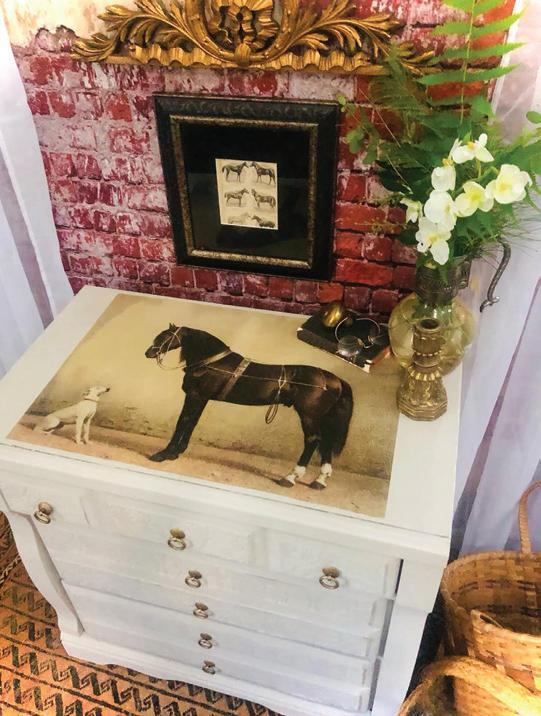
Clients can submit images over email, text, or Facebook Messenger. Metcalfe can then resize and edit the image to apply to just about anything.
“A few years ago, a friend of ours’ mother had passed and they were emptying the house and I saw this really fabulous old radio – it was not functioning and it was headed for the trash, but I picked it up. I turned it into a bar, and I donated it to LEAP [Lowcountry Equine-Assisted Psychotherapy] for a fundraiser. And just a week ago I was out to brunch with my friend, and I said ‘I don’t know if you remember…’ I showed him a picture and I told him how much it raised, and he was just moved to tears. He remembered it as a kid, and he said that his mother would be so pleased.
“I find pieces that are probably going to go in the dump. Part of the joy is being able to bring it back; that is the exciting thing. I love the handson work, and I love the staging. I just did an old
“I just love doing what I do. It’s been such a great vehicle to meet people. The horse community is a small world, and it’s been so incredibly supportive.”



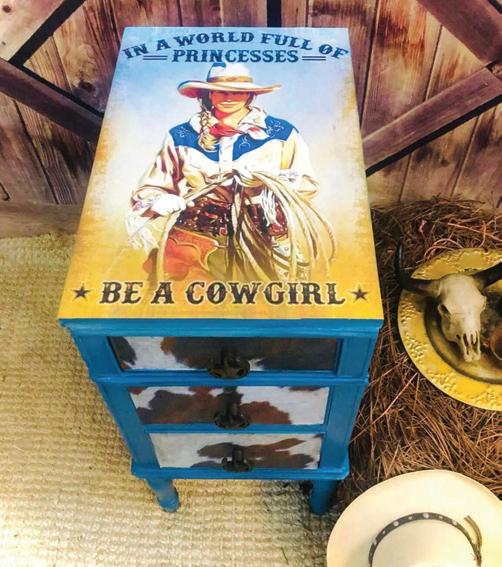
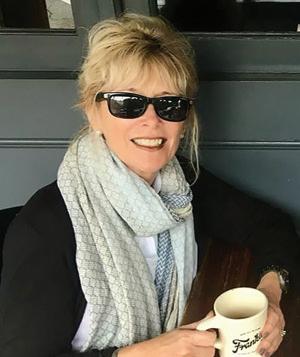
To learn more about Paula Metcalfe and Charleston Chalks, visit her page on Facebook or check out her website at Charlestonchalks.com

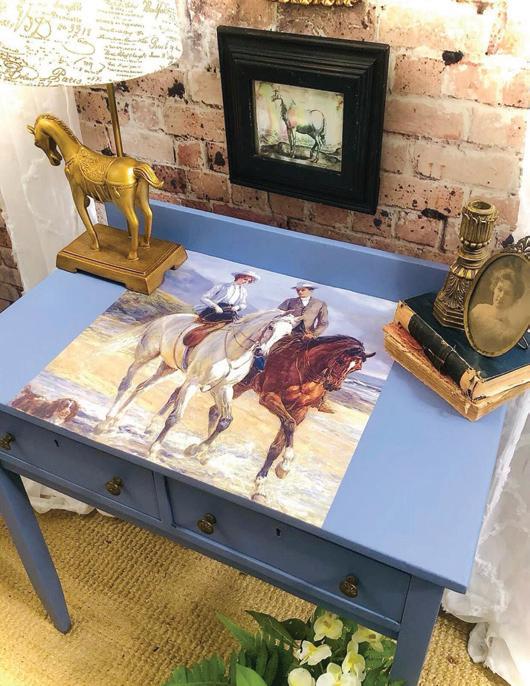
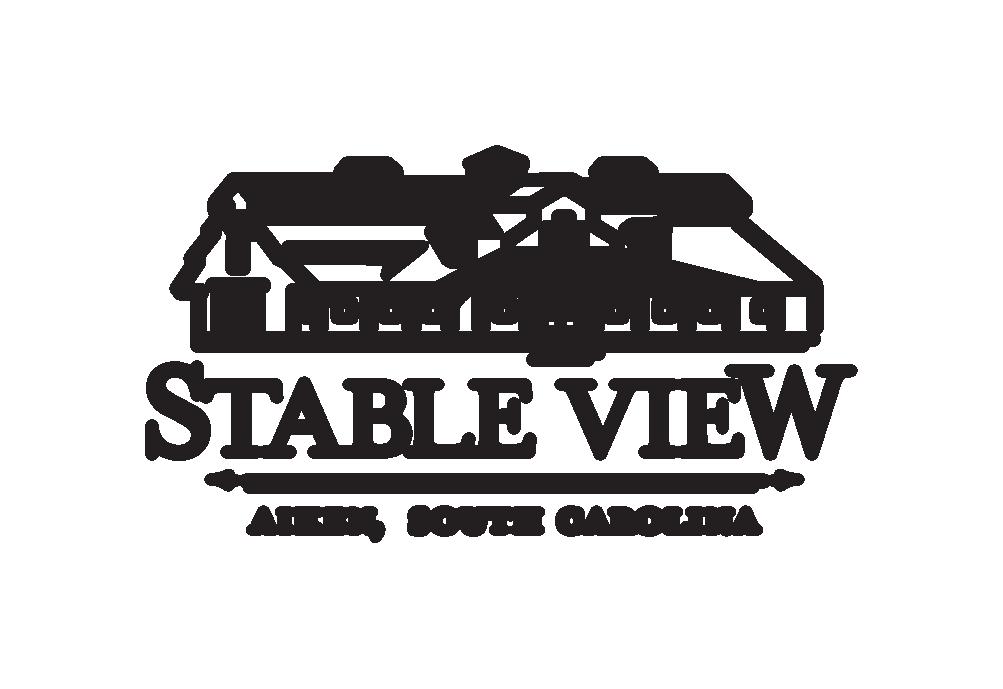
$25,000 prize money offered for each event
Fall 2: November 2nd – 3rd
Academy X-Country Schooling Day
15 Eventing Academy Schooling Day
16 Eventing Academy Schooling Horse Trials
19
Institute 26 Schooling Dressage Collection
1-2 USEF/USDF “Southern Comfort” Dressage
7 Eventing Academy X-Country Schooling Day
8 Eventing Academy Schooling Day
9 Eventing Academy Horse Schooling Horse Trials 15-16 Stable View Hunter Jumper In & Out Series
19 Hunter/Jumper Institute
26 Schooling Dressage Collection
30 Spring Trail Race
4-6 Stable View $60,000 FEI CCI-S 2/3/4* & USEF/USEA Horse Trials (T, M, P, I, A)
16 Hunter/Jumper Institute
19-20 USEF/USDF “Spring Fever” Dressage 25-27 UKC All Breed Dog Show – Aiken Showcase Dog Show
3-4 USEF/USEA Stable View Local Charities Horse Trials and USEA Intercollegiate and Interscholastic Championships 17-18 USEF/USDF “Do Dah Day” Dressage
28 Hunter/Jumper Institute
30-June 2 USHJA Hunter Jumpers In & Out Series 3
11 Schooling Dressage Collection 14-15 USEF/USDF “Summer Solstice” Dressage
20-22 USEF/USEA Summer Horse Trials (BN, N, T, M, P, I, A)
25 Hunter/Jumper Institute
27-29 USHJA Hunter Jumpers In & Out Series 4
9 Schooling Dressage Collection 12-13 USEF/USDF “Only in America” Dressage
16 Hunter/Jumper Institute
18 Eventing Academy X-Country Schooling Day
19 Eventing Academy Schooling Day
20 Eventing Academy Schooling Horse Trials
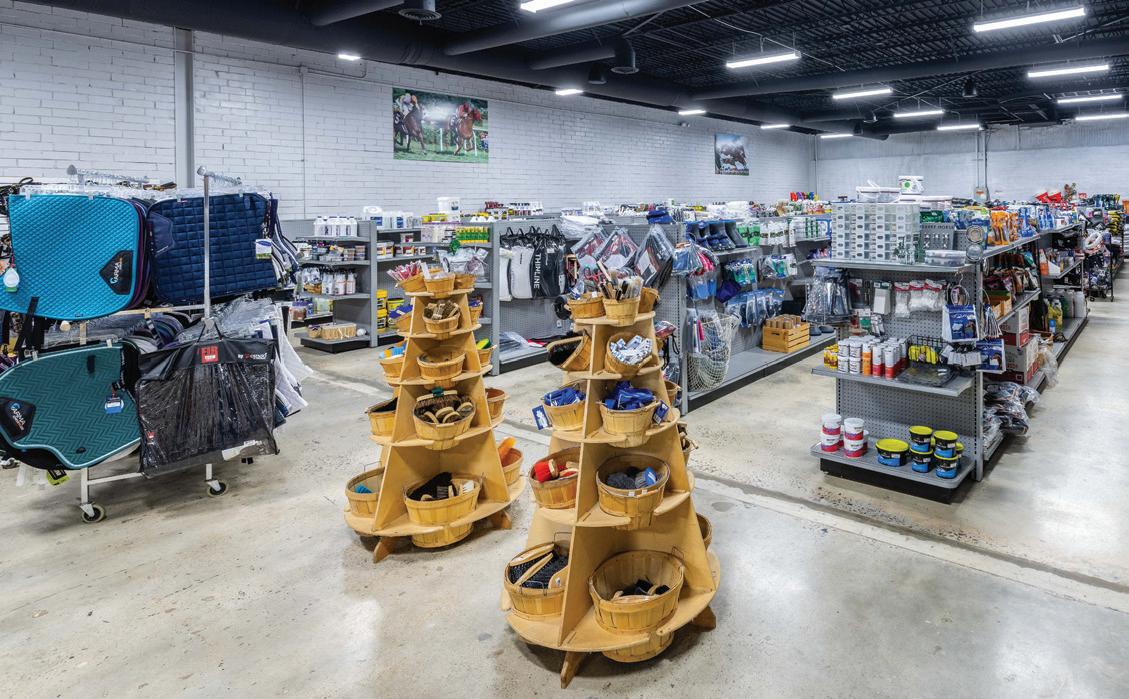


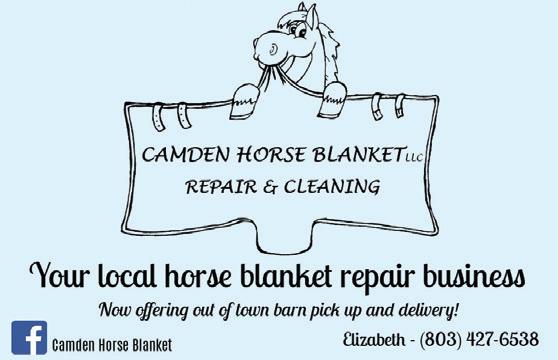
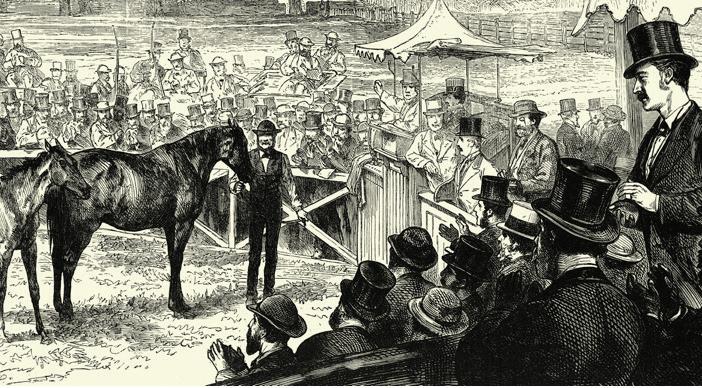





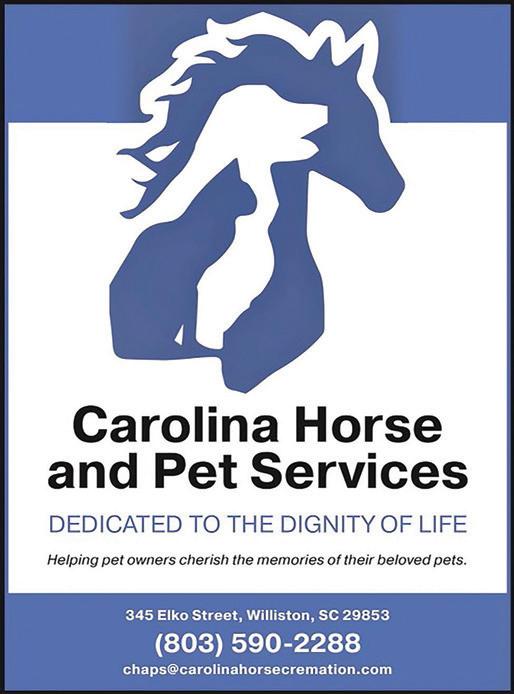
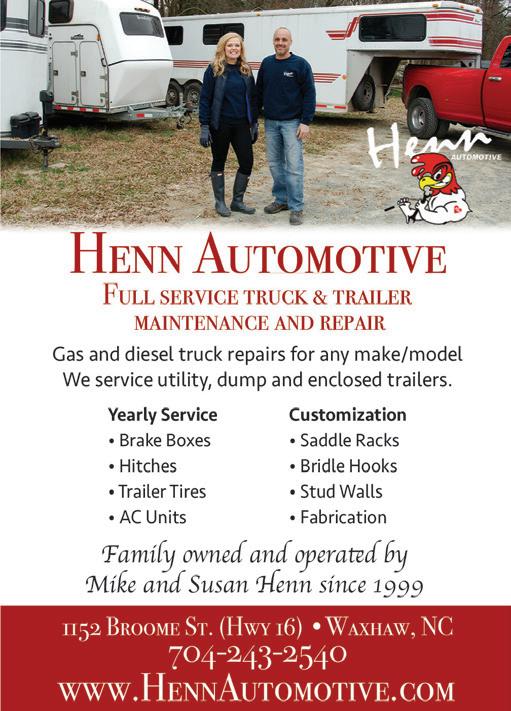
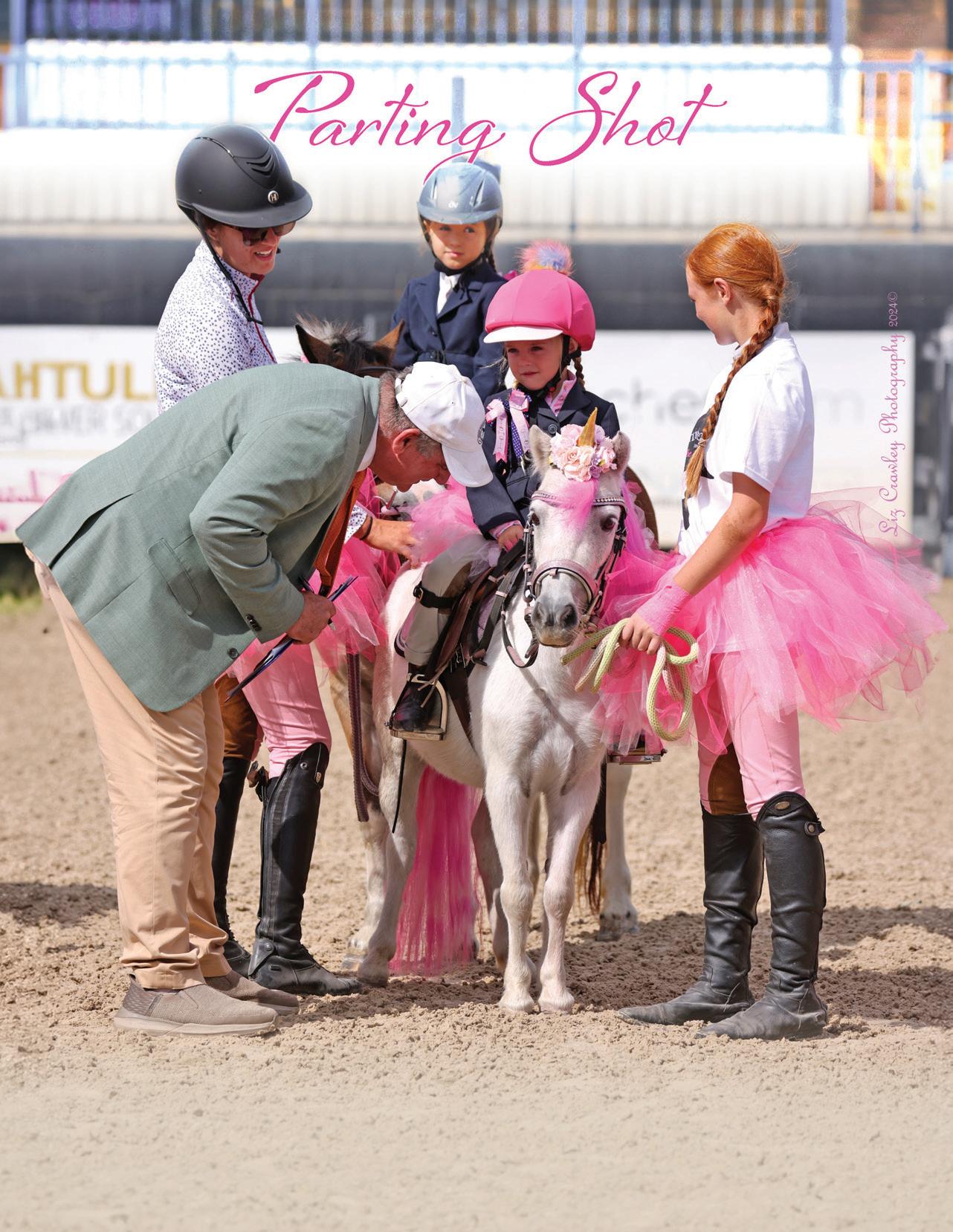
EstanciaWiggins 2253LodgeRoad Ehrhardt,SC,29081-8
Thisincredibleretreatwasborn fromadeep-seatedloveofhorses, huntingandthenaturalworld.In thesereneLowcountryofEhrhardt, thisisatrueGentleman’s/ Gentlewoman’ssportingestate standingproudlyamid83+/-acres. Pursuitsherehaveincludedfox hunting,polo,skeetandtrap shooting,beagling,deerhunting anddoveshooting.Anyequestrian disciplinewillalsobeeffortless here.
Theexquisitemainhouseisa testamenttoauthenticArgentine design,meticulouslycuratedand masterfullyexecuted.Themain housebalancessophisticationwith comfort,makingittheultimate destinationforluxuriousliving.
Numerousoutbuildingsinclude cottages,barns,kennels,anart studio,dancehallandprivate chapel.
Thisisatruehavenforanyonewho lovestheoutdoorsandthelifestyle itoffers.
3Bedroom/3Bath 4,132sq.ft.MainHouse MLS211275
803.640.4591
deirdre@aikenscproperties.com www.aikenscproperties.com
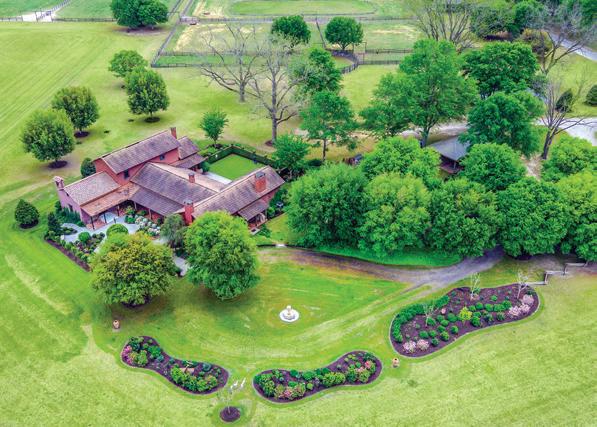
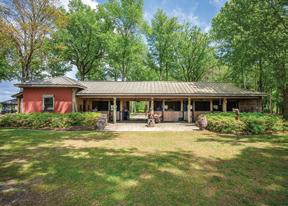
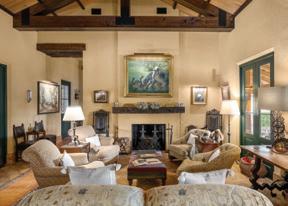
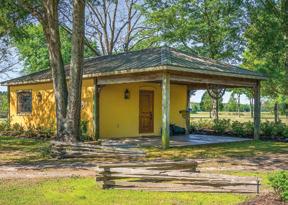
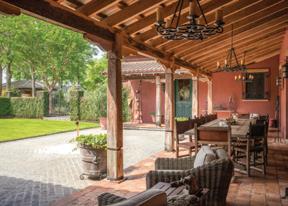

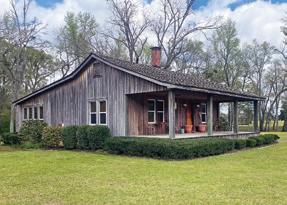
142LaurensSt.NW,Aiken,SC

